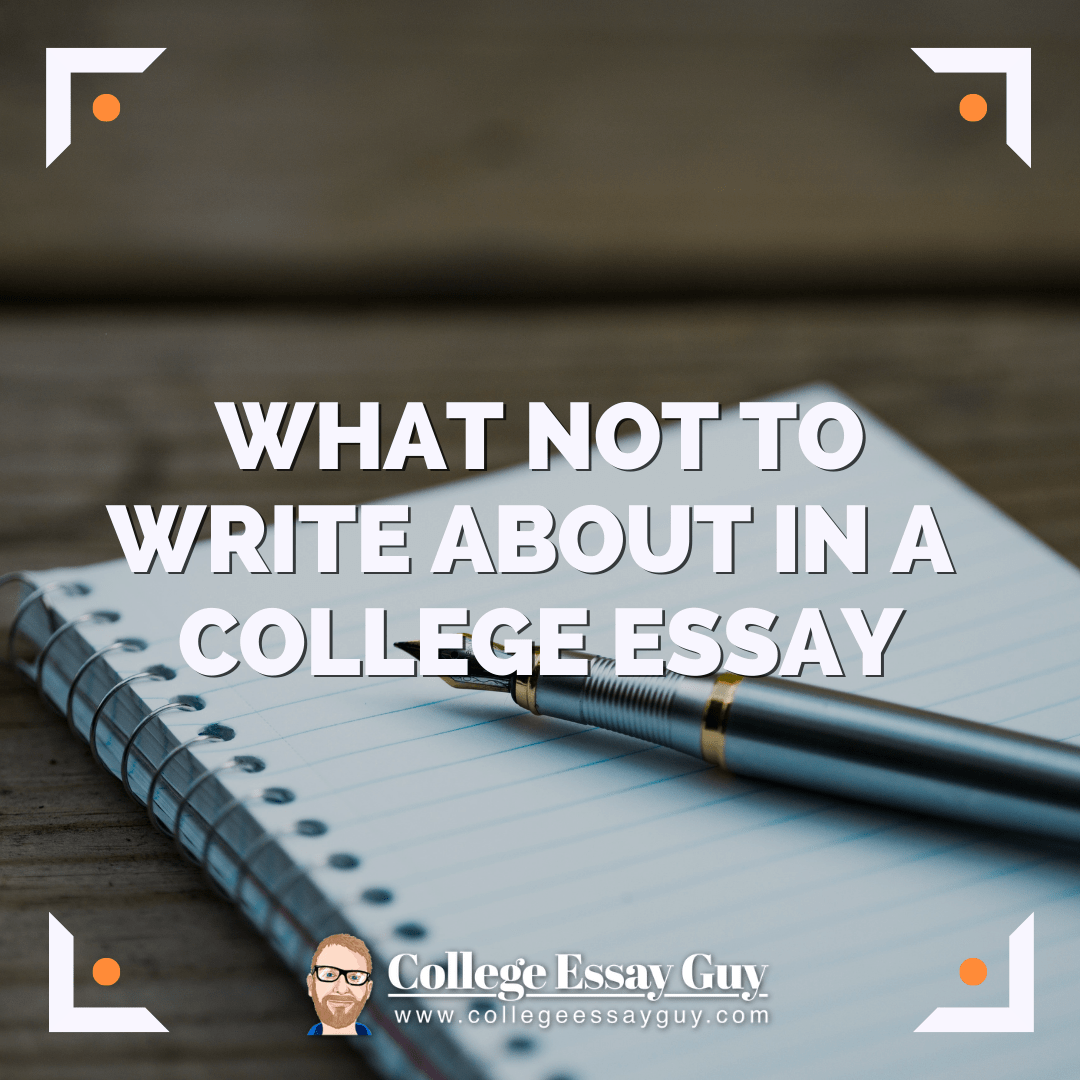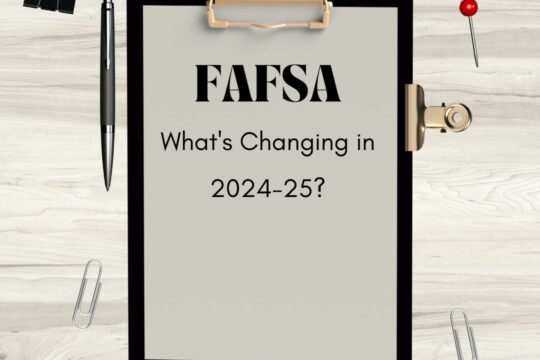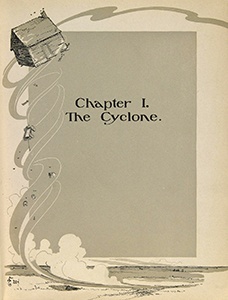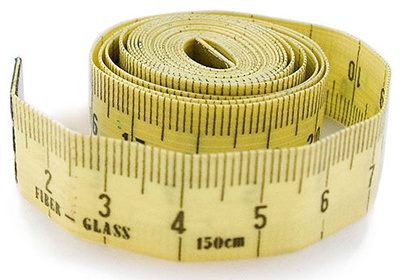
Disclosure: This article contains affiliate links, meaning that when you make a purchase, I earn a small commission. For more information, see the site Disclaimer .

College essay don’ts: 37 Things to Avoid In a college essay
Knowing what not to write about in a college essay is just as important as knowing what to write about!
This post is all about college essay don’ts , including college essay topics to avoid and how not to write your college application essays.
It’s so important to know what NOT to write about in your college application essay. Whether you’re crafting your essay for the Common App or writing shorter college-specific essays, you need to know how not to write a college essay.
Choosing the wrong topic for your college application essays could mean that you don’t get admitted to your dream school or you miss out on scholarship money.
Since you really only have one chance to get it right, you need to know what topics to avoid in your college admissions essays, general college essay don’ts, and what other pitfalls to avoid when writing your college essays.
Essay writing may feel overwhelming and stressful, but knowing what not to do will help you write a great college essay!
What not to write in your college application essay
So you know exactly what not do in college admissions essays, here are 37 college essay tips about college essay don’ts. Follow this advice to know what not to write about in your college essay!
1. Don’t restate the Essay prompt
Start your essay with a hook. Start with dialogue. Start by setting the scene.
Don’t start by restating the essay topic! The reader knows the essay prompts, so just start telling your story.
A great story will immediately grab the attention of the admission officers and make them want to keep reading!
2. Don’t try to be funny in your college admissions essay
There’s a good chance that what you think is funny may not be funny to the admissions officer. And even if your admissions officer thinks it’s funny, the dean of admissions may not agree.
Clever writing that naturally tells a funny story will get you further than trying too hard to make everyone laugh.

3. Don’t swear
You might not mind vulgar language, but many people do. It will come off as tasteless and crass. Simply put, curse words should not be part of your college admissions essay.
4. Don’t just tell the reader what you think
Tell the reader what you did, how you felt, how you changed—not just what you think. Admissions officers don’t want to read about what you think in the abstract.
They want to know what has happened to you in life, how that’s affected you, and what you did as a result.
Write an engaging, interesting story that shows the reader how you’ve grown and what you’ve learned.
5. Don’t try to Appear perfect
It’s okay that your life is messy and you don’t have it all together. It’s okay that you’re not super organized and you don’t know what you want to be when you grow up.
Your college essay doesn’t need to be about how awesome you are (really, it shouldn’t be!). It just needs to be about the real you. Remember, your personal essay for college should be just that—personal!
6. Don’t brag
Your achievements are all listed on your resume.
Writing about how great you are, how you saved the day, or how you’re a hero to others is not going to make a positive impression on the reader.
Leave the bragging to the people who wrote your letters of reference.
7. Don’t emphasize status
Avoid topics that emphasize your financial privilege. Voluntourism trips to aid people living in poverty in far-flung areas of the world is a key example of this.
Don’t write about going on a mission trip to a third world country to volunteer to help the less fortunate and how you learned how privileged you are. Just don’t.

8. Don’t lie
Don’t inflate your accomplishments. Don’t pretend to be someone you’re not.
If you write something dishonest in your essay, it won’t match the other parts of your application. If you were found to have been dishonest when writing your essay, you will not be offered admission at that college.
9. Don’t reveal too much
If you have faced personal challenges, like addiction, mental health struggles, or learning disabilities, those struggles are part of you. You should feel proud of overcoming them.
But your college admissions essay is not the place to share your most deeply personal experiences.
Some college admissions officers may read about your challenges and want to welcome someone with your tenacity and spirit to their campus.
Unfortunately, most admissions officers will read about your challenges and worry that you will face similar issues at their university.
Many colleges choose not accept applicants who have demonstrated past mental health issues. This might not seem fair, but it is reality. Don’t hide your true self or be dishonest, but carefully consider how much you want to reveal in your admissions essay about your private struggles.
10. Don’t write about illegal activities
It’s a safe bet that most colleges do not want to admit students who have a history of participating in illegal activities.
Even if you plan to talk about drug use, alcohol use, jail time, or committing crimes as a way to show growth and discuss lessons learned, illegal activities show a lack of maturity and questionable judgement.
Writing about criminal behavior will not reflect well on you as a candidate for admission. Illegal activities make bad topics for college essays.
11. Don’t summarize your resume
This is one of the biggest college essay don’ts! Your college essay is your opportunity to tell the college admissions office who you really are and what really matters to you.
Your resume already lists your activities, and your transcript details your grades. Your college essay isn’t the place to review these facts; it’s your chance to stand out by telling your story.
12. Don’t tell a general story
Be specific. In fact, be very specific. Focusing on the details of your story will help make your college essay unique so that it stands out.
A good college essay will tell a story that could only have been written by you—no one else.
Instead of telling a biopic story of your life, focus on one aspect of your life—your beliefs, a meaningful experience, a key event—that explains who you are and what matters to you.

13. Don’t write about cliché topics
Avoid writing about the sports victories and defeats. Winning a big game or losing a championship game might mean a lot to you, but sports are common topic and best avoided.
Don’t write about overcoming an academic setback or a romantic breakup.
14. Don’t write about something controversial
You don’t know who will be reading your college admissions essay, and they might not agree with your views on controversial topics.
Moreover, your reader might not appreciate how you approach a sensitive topic. You might appear close-minded and unempathetic.
The last thing you want to do is make the admissions officers reading your essay think you would bring discord to the campus community.
15. Don’t undervalue the small stuff
Great essays can be crafted from the small, personal details of daily life.
Don’t underestimate what interesting essays can be written about your morning routine, your favorite family recipe, your relationship with your sibling, or what you do on a snow day.
In fact, some of the most memorable, best essays have been about a random item, food, or daily routine.
16. Don’t go negative
Criticizing other people, your current school, or anything else will probably just make a bad impression on your readers.
Don’t whine about your life. Negativity says more about you and how you perceive the world around you than it does about anything else. Certainly don’t criticize the college you’re applying to!
If you do want to write about negative experiences you’ve had, quickly move on to discussing what you’ve learned or how you’ve grown as a result of those experiences.
17. Don’t be pompous
Never assume that you know better than your readers or that your approach is the only way.
Don’t tell your reader what they should think. Avoid making generalized value judgements.
18. Don’t go completely off topic
Don’t try to stand out by submitting a poem or creative writing sample.
Write a thoughtful, well-crafted essay about yourself, just like they asked for.
Show that you respect the school admissions committee’s request and can follow directions.
19. Don’t ignore the prompt
College admission essay topics are designed to allow you a lot of freedom in how you answer. Craft a story that tells something about you, within the framework of the prompt.
Just double check that your essay answers the prompt, to make sure you didn’t veer off topic as you wrote and edited the essay.
Also know that you can write about whatever you’d like to . In your essay writing process, if you find that the first prompt you chose isn’t working out, choose a different one and start again.
20. Don’t get the tone wrong
Your college admissions essay is not an expository essay, formulaic and devoid of warmth. Nor is it the right time for you to use all the fancy words you’ve been studying for the SAT.
Your college admissions essay should be engaging, show your personality, and sound like you—a teenager reflecting on your life thus far.
21. Don’t write a trite conclusion
If your essay has done its job, you shouldn’t need to sum it all up for the reader in a neat little final sentence.
If you have shown your reader what you’ve learned, how you’ve grown, or who you are, you don’t need to say it explicitly at the end of your essay.
The conclusion is often the hardest part of the essay to get just right, so don’t worry if it’s hard to find the perfect words. Take a break from writing it and come back in a few days to get a fresh perspective on what you’re trying to say.
22. Don’t wait until the last minute to Write
Start writing your college admissions essay weeks, if not months, before its due. Senior year is an incredibly busy time, so it’s a great idea to get started on your college admission essays as early as possible.
Leave plenty of time to think about what you want to say, revise and edit, and finalize the essay. You’ll be amazed at how your essay can improve if you allow ample time to work on it.
If you’re going to apply early decision or early action, consider starting to work on your main essay the summer after junior year, before your senior year even starts, or early in the fall of senior year.
23. Don’t ignore the word count
You don’t want to write too much or too little. Aim to be within a few words of the word limit. Express yourself clearly and concisely.

24. Don’t repeat your resume
When you’re writing your personal statement essay, don’t just repeat your high school resume.
Your personal essay is your chance to talk about an aspect of your personality or life experiences that can’t be found anywhere else in your college application.
The list of courses you’ve taken (and your grades) tell about your academic interests. So there’s no need to turn your essay into a list of your academic achievements!
Your extracurricular activities show what you’re interested in and how you use your time. If you want to discuss how your extracurricular activities have been formative experiences for you, focus on one particular example. Don’t re-list all your volunteer experiences!
Your personal statement essay should reveal something about you that doesn’t show up in the rest of your application.
25. Don’t write about an “example” topic
If you have read some amazing examples of college essays, and you’re thinking that you could write on that same topic, don’t.
Chances are, if your English teacher pointed out those examples, or you found them via a Google search, every other high school senior (and every school admission officer) has seen those essays too!
Instead, dig deep and write your own amazing personal statement !
26. Don’t copy and paste
It’s completely fine to use the Common App to submit your personal essay to every school on your list (as long as they accept the Common App, of course).
But for each college’s specific essays, tailor your essay to each school. Include specific details about each college that make you want to go there. And make sure your responses are appropriate to the culture of each college.
If you do copy and paste your essays, be sure the essay doesn’t refer to the wrong school!
27. Don’t overuse the thesaurus
Everyone gets stuck using the same words over and over again, and it’s fine to check a thesaurus when you’re writing.
But don’t use big words just in an attempt to impress the college admissions officers. Don’t use words you don’t really understand to try to sound smart.
For a great college application essay, write naturally in your own voice and let your true personality show.
28. Don’t plagiarize
If you’re submitting someone else’s college essay as your own, you’re giving up the chance to share your unique story with the admissions office.
You’re also risking an automatic rejection if you’re caught!
29. Don’t be fake
Use your essay to tell the admissions officers what you want them to know about you.
Don’t try to guess what the admissions officers would like for you to say or try to be someone you’re not.
Don’t invent a tragic event in your past, claim to have done hours and hours of community service you haven’t done, or exaggerate any aspect of your life.
Be authentic, write with your own voice, and craft an essay that stands out from the other applicants.
Simply take your time to craft a thoughtful essay that tells your personal story. Talk about your unique perspective on one specific experience in your life, using your authentic voice.
30. Don’t write a school essay
Your college admissions essay is not a five-paragraph expository essay that you would write for English class.
A winning college essay should have a beginning and an end, but the part in the middle should tell a good story, not make an argument in three points.
The expository essay style of writing might be what your English teacher wants, but it makes for bad college essays.
For a college application, a well-written essay will examine your personal growth, your unique experience in life, and the different perspectives through which you see the world. And you should do this by crafting an intriguing story about a specific moment or experience that was significant to you.

31. Don’t Avoid feedback
If you’re feeling stuck, feel free to ask someone else—a teacher, parent, family member, or friend—to read your essay. Getting feedback on your entire essay is the best way to get a sense of how admissions officers will respond to reading it.
Feedback does not mean that they tell you what to write or how to write it.
Feedback should mean getting input from someone else can help you learn where your essay veers off point or where you need to dig deeper to tell a better story.
32. Don’t skip editing
Please allow enough time to write AND edit your essay. Ideally, you will write a first draft of your essay, then edit it, then get feedback, then edit it again, then write a final draft (then proofread it—see below).
Expect to write at least three or four, and maybe many more, drafts of your college application essay. Your essay will improve with each round of editing.
The essay writing process can be time consuming, but in the end you’ll have a strong essay to share with college admissions offices, so it will be worth it!
33. Don’t overedit
What? Didn’t I just tell you to edit?
Yes, absolutely. Just be sure that after you’ve shown your essay to trusted readers and you’ve made your edits, your story still remains.
The essay should still have your voice and should tell the story you want to tell.
34. Don’t skip proofreading
After you make your edits and write a “final draft,” you might want to click send and submit your essay. But not so fast!
Take time to do a final proofread of your essay.
Better yet, ask a teacher, college counselor, or someone with excellent grammar and spelling skills to proofread your essay. Having a fresh set of eyes on your essay will help ensure it is error-free.
35. Don’t just rely on Spellcheck
It’s really important to have an actual person proofread your essay.
Spellcheck and other editing software won’t necessarily catch grammar errors, typos, or poorly structured arguments.
It’s always a good idea to trust the final proofread of your essay to a person, rather than technology.
36. Don’t submit your essay at the last minute
You never know when a website will get glitchy!
Don’t take a chance that the Common Application or an individual university’s website won’t act up at a crucial moment. Do your best to upload your college essay at least a day before it’s due!
The admissions process is stressful enough without adding in technical errors. Don’t risk missing the deadline by procrastinating!
37. Don’t submit an incomplete essay
When you’re in the Common App website or a specific college’s application portal, and you attach your admission essay, scan it quickly before hitting the submit button.
Be sure you attached the correct file or that the complete essay transferred when you copied and pasted it into the online form.
It won’t matter if you write a great essay if you don’t submit it correctly!
Final thoughts on college essay don’ts and what not to write in your college essay
Personal essays are a key part of the college application process. College admissions counselors, especially at smaller colleges, use college essays to learn more about the applicants applying for admission at their school.
An amazing college essay might not make up for bad grades or a lack of extracurriculars, but a poorly written essay may push your application into the reject pile. This is especially true now that test scores are usually optional.
Successful essays allow admissions officers to learn about your personal qualities, your take on global issues, and how you might contribute to campus life.
Writing a great college admission essay is the most important thing you can do to make a great impression on the admissions team.
After looking at so many college applicants, test scores, GPAs, and awards all blend together. It’s the personal essays that stand out when admission counselors are deciding which high school seniors will be accepted.
So, it’s worth taking your time to write the best college admissions essays you can.
By avoiding all these college essay don’ts, you’ll know what not to write in your college essay.

How to Write an Amazing College Essay: 25 Tips
Why you’re writing a college essay, how to choose a topic for your college essay, how to write an amazing college essay, how to edit your college essay, and how to make your college essay stand out.

9 tips for How to Write a College Essay That Stands Out
Are you wondering how you’ll manage to write a college essay that stands out from all the other admissions essays? How do you even start writing a standout college essay? If you’re a high school senior…

Can I use the same essay for different colleges?
Can you submit the same essay to different colleges? Yes, no, and maybe. You have so many essays to write for college applications! There’s your main college admissions essay, or the personal statement. There are college…
Graduate of Brown University, higher ed professional, and mom of three. Sharing everything I’ve learned about college with you.
Similar Posts

High School Senior Year Bucket List: 150 Fun Things to Do
Are you looking for the best senior year bucket list? This post will inspire you with the absolute best…

How to study for the SAT: Prep for an awesome score
How to study for the SAT: what you need to know to prep for an awesome score

At What Age Do You Go To College?
Can you go to college at any age? Are you ever too young to go to college? Or can…

How to Choose a Unique College Essay Topic
Learn how to write a unique college admissions essay that makes you stand out.

What is rolling admission? Is it Right for You?
Are you wondering what rolling admission to college is? What are the advantages of rolling admission? Is rolling admission…
Can you submit the same essay to different colleges? Yes, no, and maybe. You have so many essays to…

What Not to Write About in a College Essay

Once you get into college, essay writing becomes a way of life. It’s only fitting, then, that getting into your dream college often involves writing one or more college essays as part of your application process. However, many students struggle with one big question: “what should I write my college essay about?”
To maximize your chances of getting accepted, you need to know how to write college essay topics that stand out. And, just as importantly, you need to understand things to avoid in college essays!
If you’re worried about questions like “how should I write my college essay,” don’t worry: we’ve got you covered. Keep reading to discover the best college essay ideas as well as a definitive roundup of things to be wary of.
What do colleges look for in essays?
Overall, colleges are generally trying to get a sense of who you are through your college essays in your perspective, values, and voice. But here’s the paradox of the college essay: the prompts are often intentionally generic. For example, a prompt might ask you to describe a time you overcame a challenge. This makes most students think the admissions committee is interested in the challenge itself. However, what the committee really cares about is who you are, and the prompts are designed to let them know more about you in a dynamic way.
So there are plenty of ways you could answer the prompt , but you need to make sure your responses help to illustrate some of the positive traits a committee might be looking for. For example, an in-depth explanation of a time you solved a complex dilemma can showcase your potential as a scholar and researcher. And an essay about you volunteering in your community shows the admissions committee that you are a leader who is focused on making the world a better place.
Beyond making yourself look good, the primary goal of any college essay is to help you stand out from other applicants. This gives you a chance to really lean into a certain writing style (for example, it’s okay to use a humorous writing voice) that makes your essay more memorable. In fact, it actually helps to humanize you, meaning the admissions committee will see yours as more than just another application in the stack.
And because your goal is to stand out and show who you are, some topics are better than others when it comes to writing a great essay. So let’s take a closer look at some of the common college essay topics you should probably avoid.
Cliche College Essay Topics to Avoid
Below, we’ll break down some of the most cliche essay topics. For each one, we’ll get more into how and why it’s a bad topic (by “bad” we mean it’s really hard to write it well). And if you’re absolutely determined to go with one of these college essay topics to avoid, we’ve got info near the end on how you can make the essay as strong as possible.
Resume/academic achievements
What’s the biggest mistake you can make when writing a college essay? Simple: accidentally thinking that you’re applying for a job instead!
Many students asking “what do colleges look for in essays” decide that the best approach is to list out different kinds of achievements. These may be academic achievements or achievements related to various extracurricular activities (such as sports trophies).
What’s the problem with focusing on your accomplishments like this? The biggest is that it misses the point of the essay—we don’t really get a sense of who you are through these things. Since you have so few words to work with, a long list of accomplishments is going to feel cramped. Plus, there won’t be much room to contextualize the achievements or to humanize yourself. And you have other space for these kinds of things—use the Activities List and Additional Info sections. At the end of the day, you are far better off crafting your essay around a single awesome experience than you are turning the entire essay into a resume .
The mission trip essay
Religious students are often tempted to submit college essays focused around a mission trip they went ont. On paper, this seems like a good idea: it showcases leadership, community service, and the student’s general willingness to help other people. However, submitting the mission trip essay tends to be a bad idea for several different reasons. (The fact that it has a name, “The mission trip essay”, is a sign.)
First, this is one of the most common college essay topics that admissions committees receive. Some committee members may be annoyed at seeing “yet another one” in their stack of essays. And even if the committee is fine with a mission trip essay, so many people write them that it’s going to be hard to not sound like hundreds of other applicants.
Second, there is a real danger in how you describe the communities that you helped. If you’re not careful, you may use the language of exclusion or xenophobia. Instead of making yourself look good, this could make you look judgmental or even bigoted.
Third, and finally, mission trips are all about helping other people (Which is great! Definitely help other people!). But when you write an essay trying to make yourself look good for helping people, you may end up seeming overly self-congratulatory, which defeats the purpose of writing the essay in the first place.
Sports challenge essays
If you’re an athlete, writing a college essay about a sports challenge you faced may seem like a no-brainer. “Sports challenges” include essays about winning the big game, losing the big game, making (or not making) the team, and even getting a nasty sports injury. However interesting the sports challenge itself was, though, these typically make for bad college essays topics. (Again, meaning they’re tough to write well in ways that stand out.)
Why is that? Like the mission trip essay, a sports challenge college essay is very common. Since one of the main goals of the essay is to help you stand out, it doesn’t really help to do the same thing that countless other people are doing. For example, almost everyone writing about losing the big game ends up writing the same “lessons learned” about humility, teamwork, overcoming disappointment, etc.
And another big reason to avoid the sports challenge college essay is that you have to use so many words to explain the context of the big game, what the major plays were, the ultimate outcome, and so on. This doesn’t leave much room for personal reflection or even stylistic writing, so you are left with an admission essay that mostly codes you as “generic athlete” in the eyes of the committee.
The Big Performance
A close cousin to “the big game” style of college essay is “the big performance.” These are essays that focus on someone getting ready to take center stage in a play, perform a captivating musical solo, give a major speech, and so on.
As with sports challenge essays, these essays are very common, and tend to have very similar plot points, so it’s tough to make your own stand out. For example, the big performance always goes well or goes poorly. Performers almost always learn either the value of preparation or the inner strength to overcome a major disappointment. With these kinds of essays, you may be unable to do what you did with an actual big performance: stand out in a big way.
Another thing these essays have in common with sports essays is that you will inevitably spend much of your essay word count describing what the performance is, how you actually performed, what made the performance great (or not so great), and so on. This gives you less room to humanize yourself and emphasize how and why the skills you used to face this challenge make you an ideal college student.
Cliche immigration story
Sometimes, what makes a topic a bad college essay is that it doesn’t really do anything new. And that’s the case when it comes to the cliche immigration essay.
We say “cliche” because the vast majority of college essays focusing on immigration emphasize the same things: moving to a new home, feeling out of place, and eventually learning to accept both one’s cultural heritage and one’s new surroundings. There are more of these college essays than there are Lifetime movies about falling in love with a handsome stranger.
Does this mean there’s no way to write a good immigration-focused college essay? Of course not! But try to pick a more unique story related to your immigration experience. Not only will this help your application stand out, but a more unique topic can also help to humanize you as you describe the unexpected situations that you had to ultimately overcome.
Why X person is your hero
Sometimes, it’s tempting to write about someone who is your personal hero. After all, these are the kinds of people who have influenced the trajectory of your life in a major way, and it’s easier to write passionately about the people who have inspired your own passions.
However, there is one chief reason you should be wary of writing about your personal heroes: if you’re not careful, the essay ends up being more about the other person than yourself, which can lead to a reader feeling like “Your grandma sounds awesome. Too bad she’s not applying to college.”!
The tough grade you got
Many college essay prompts ask you to write about a time that you overcame a major challenge. There are many challenges students could potentially write about, and many choose to write about what they did after they received a bad grade.
It’s generally never a good idea to use this as an essay topic, though.
First, other students will write about some serious challenges, even things like escaping war . Framing getting a bad grade as a serious challenge next to something like that … may not go so well.
And while everyone has gotten a bad grade from time to time, you don’t want to make poor academic performance the first thing an admissions committee hears about you.
Try to focus on a topic that emphasizes your strengths more than your weaknesses.
And if you feel like you don’t have many challenges to write about, check out this guide on how to write well about a challenge that wasn’t really a big deal .
Your first heartbreak
There is nothing quite like the rush of young love … and nothing quite as painful as a young breakup. And due to the raw intensity of the emotions involved, many would-be college students focus on their first heartbreak as their college essay topic.
But this is generally a bad idea for several reasons. First, to be blunt, epic teen romance is usually far less important to those outside the relationship. It’s a bit of an uphill climb to even get the admissions committee to see this as an important topic.
Second, as with writing about your heroes, writing about a heartbreak means you’ll spend plenty of time writing about the other person. And the more you talk about your ex, the less room you have to talk about yourself.
Third, many people have multiple relationships over the course of their college education. If you spend hundreds of words talking about how much a single breakup nearly disrupted your life, it may make the committee worry about how easily you could get distracted by romance and start losing focus on your actual studies.
Illegal/unethical activities
In a perfect world, this would go without saying, but here goes: whatever you do, make sure your college essay doesn’t talk about you participating in illegal or unethical activities. For example, if you casually mention illegal drug use in your essay, it will make the college worry about you partaking in illegal drugs while at the college. They may even worry about you getting others (such as frat brothers or sorority sisters) using illegal drugs as well. Not a great look.
And even when it’s not an outright crime, you should refrain from writing about unethical activities that make you look bad. For example, some students have actually written college essays about how they were caught cheating on a test and ultimately learned from the experience. Learning from mistakes is fine and all, but the only outcome of such an essay is making the admissions committee question how long it will take you to start cheating on various college tests and essays.
The ideal essay topic is one that makes the committee trust you and believe that you’ll add value to the college. That’s going to be tough to do when you write about illegal or unethical activities.
If you really, really want to try to make a cliche topic work
So far, we have focused on very specific essay topics you should steer clear of. However, there are many students who gain admission to their dream colleges every year by using these topics. What’s their secret? Simply put, they have found a way to make cliche topics feel a bit less cliche.
For example, if you decide to do a “resume” style essay, don’t try to dazzle them with all of your different accomplishments. Instead, zero in on one very specific accomplishment, and dive into layers of reflection and meaning. This gives you much more room to detail how the experience shaped you into the kind of person who will add real value to the college. The same wisdom holds true for writing about your mission trip: if you must write about it, try to focus on values that we’re not expecting. Like, did it teach you about healthy boundaries and autonomy and balance, instead of the cliche version. .
Same thing applies if you must write about overcoming a sports challenge: try to avoid common topics such as, grit, resilience, determination (which are basically all the same thing), learning to trust teammates, how you were thrilled at winning the big game, or how heartbroken you were to lose. Instead, try more unconventional topics like how a sports injury forced you to learn new skills or how it helped you discover a new passion. One of the best we’ve seen was how playing cornerback helped a student read Dostoevsky better. In addition to being more unique, such a topic shows you are adaptable.
If you decide to write about a big performance, it helps if the performance itself is unusual. No matter the performance, though, try not to spend too much time describing that performance. Instead, you should use the outcome of the performance as a springboard to discuss the new skills and life lessons you have learned. Ultimately, it will be what you know now that gets you into the college of your choice rather than how you performed then .
As we detailed before, an issue with most immigration college essays is that they focus on worn topics such as adjusting to a new place, learning new languages and cultures, and so on. If you’re going to write this essay, you’ll be better off focusing on something like a single specific moment (like what you did the first time you encountered racism or xenophobia) or a much less conventional challenge you faced (for example, asking someone out on a date when you are still struggling with a new language).
When writing college essays about your personal hero, be sure to actually focus more on yourself than on them. Help us see what you learned from them, how you’ve applied those lessons, and how they’ve shaped you into the thinker and scholar you are today.
Finally, we generally recommend against trying any variation of the “bad grade” essay—it’s crazy hard to make work. You should similarly avoid writing about your first heartbreak because it is nearly impossible to write a brief essay about young love gone wrong the committee hasn’t seen a thousand times before.
And at all costs, avoid writing about illegal or unethical activities unless you want your application sent to the “circular file” (the nearest trashcan).
Start writing your college essay today
Now you know what to do when it comes to college essays. And, perhaps more importantly, you know what not to do. Now comes the hard part, though: sitting down and doing it!
Fortunately, this is not a challenge you have to tackle on your own. We offer a full set of resources to help you craft a great essay and get help with other college admission questions . We’re here to help you do one very important thing: to turn the college of your dreams into reality for the next school year.
Special thanks to Chris Snellgrove for writing this blog post.

Chris Snellgrove is an English Professor at Northwest Florida State College who specializes in literature, rhetoric, and business writing. As a freelance writer, Chris specializes in sales, marketing, pop culture, and video games. He has a B.A. in English from Troy University and both an M.A. and Ph.D. in English from Auburn University. When he’s not writing or talking to others about writing, Chris loves reading books, playing video games, watching horror movies, and disappearing into a comic book. He currently lives in Northwest Florida and would probably rather be at the beach right now.
Top values: Diversity / Equality / Social Justice

- Lake Park High School Scholarship
- The College Careers Consulting Homeschool Scholarship
- Free Consultation
- 708 268 5230
- [email protected]
College Essay Don’ts: 20 Things to Avoid to Stand Out
- August 19, 2023

College admissions officers have their own preferences when it comes to essays, but they all tend to agree on what they dislike. It can be disheartening to think that you can’t guarantee a perfect essay, but avoiding certain mistakes will increase your chances of success. A blunder in your college essay could potentially cost you admission to your dream school. The good news is that many of these mistakes can be easily avoided if you understand what they are and why they matter. If you’re looking for guidance, here’s a closer look at what you should avoid writing in your college application essay.
#1 No need to show off your Academic Superhero Cape!
(aka – avoid repeating information) Your grades and awards already speak volumes. Let’s focus on the real YOU! Think about what the application already says about you and avoid repeating the information already present in your academic record, such as your grades, test scores, and extracurricular activities. Instead, focus on unique aspects of your personality and experiences.
# 2 Don’t Be a Topic Troublemaker:
(aka – avoid controversial topics) Stay away from controversial subjects that’ll make the admissions officer do a double take! No political hot buttons, please! Examples: Avoid writing about gun control, abortion, or immigration policies.
#3 Say No to Essay Monotony:
(aka – avoid a general topic) It’s not a robotic analysis; it’s a character-revealing adventure! Share specific moments that highlight your amazing self in action! For instance, write about a particular challenge you faced and how you overcame it, revealing your determination and resilience.
#4 Famous Quotes, Really?
( aka – avoid opening with a famous quotation) Unless it’s your life motto, let’s save the inspirational stuff for Pinterest boards. Your own words rock, buddy!
#5 Avoid Making Someone Else the Star:
(aka – avoid writing about someone else) Though it might be tempting to write extensively about a role model or someone else’s accomplishments, it’s a bad idea. Making them standout is not the goal. The essay should primarily focus on your own experiences, growth, and achievements.
#6 Don’t Dribble Away Your Essay on Sports:
(aka – avoid sports) Sports enthusiasts, listen up! Even if you’re the next LeBron or Serena, don’t dribble away your essay on sports. Show them your versatility! Everyone writes about sports. Even if sports are your strong suit, it’s advisable to avoid writing solely about them. Instead, explore other aspects of your life or personal interests to provide a well-rounded portrayal of yourself.
#7 Tragic Topics Need a Twist:
( aka – avoid tragic topics) Tragic tales need a twist! Only focus on personal growth through tough times. No tearjerker drama without redemption, please!. Here are some examples: Loss of a loved one: While it can be tempting to write about the profound impact of losing a family member or close friend, it’s important to shift the focus towards personal growth, strength, or lessons learned from the experience. Avoid dwelling solely on the sadness and grief associated with the loss. Serious illnesses or medical conditions: Writing about personal health struggles can be challenging, as it’s important to strike a balance between sharing the experience and highlighting one’s ability to overcome adversity. Focus on resilience, determination, or the insights gained from facing the challenge rather than just recounting the medical details. Natural disasters or tragic events: Discussing traumatic events like earthquakes, hurricanes, or acts of violence can be sensitive. If you choose to write about such events, it’s crucial to emphasize personal growth, community resilience, or efforts made to contribute positively towards recovery or prevention. Avoid sensationalizing or dwelling excessively on the tragedy itself. Personal accidents or injuries: If you’ve experienced a serious accident or injury, be cautious when writing about it. Instead of focusing solely on the negative aspects, highlight your determination, perseverance, or the lessons learned during the recovery process
#8 Start With a Bang, Not a Yawn!
(aka – avoid preludes) This is an essay about…” Snoozeville! Starting your essay with a generic introduction lacks creativity and engagement. Grab the reader’s attention with a compelling opening that sets the tone for your unique story.
#9 No Fairy Tale Ending:
(aka – avoid cliché endings) No happily ever afters, my friend! Show them your learning, don’t tell them. Leave ’em wanting more! Conclude your essay without resorting to a cliché ending. If you have effectively conveyed your growth and lessons learned throughout the essay, there’s no need to explicitly state it again in the conclusion.
#11 Don’t Play Professor Know-It-All:
( aka – avoid campaigning) Avoid pleading your case. Let your story speak for itself! Refrain from telling readers what they should think or advocating for a particular viewpoint. Instead, focus on expressing your own thoughts and experiences without trying to persuade or convince the reader.
#11 No Black Holes:
(aka – avoid being flawless) Don’t get lost in your own thoughts. Embrace your complexities, including your mistakes and imperfections, rather than presenting an idealized version of yourself. It’s more effective to embrace vulnerability and showcase personal growth. Admissions officers value authenticity and want to understand the real person behind the achievements. Sharing genuine experiences, including setbacks and lessons learned, allows the reader to connect with the applicant on a deeper level and fosters a more meaningful understanding of their character and potential contributions.
#12 Too Much Info Alert!
(aka – avoid oversharing) Be cautious about sharing too much information in your essay. While no stories are off-limits, present them in a way that captivates the reader and invites them into your experience, rather than traumatizing the reader and pushing them into a black-hole. Example: In an essay, one of our students delved into a traumatic event from his childhood where he witnessed a violent crime. Rather than approaching the topic with sensitivity and focusing on personal growth, he described every gruesome detail of the incident. He vividly recounted the blood-soaked scene, the screams echoing in his ears, and the fear that consumed Him. The essay became a graphic and unsettling account that could potentially disturb or traumatize the reader.While it’s important to share personal experiences authentically, it’s equally crucial to consider the emotional impact on the reader. Oversharing in this context involves providing excessive and distressing details without proper consideration for the potential impact on the audience. Instead, it would be more appropriate to focus on the emotional journey, resilience, and personal growth that stemmed from that traumatic event, while omitting explicit and potentially traumatizing elements.
#13 Leave the Fiction To the Novels:
(aka – avoid lying) No made-up stories about yourself, okay? Keep it real, authentic, and genuine! Never fabricate stories or exaggerate your experiences in your essay. Admissions officers value honesty and integrity, and it’s important to present genuine narratives that reflect your true character.
#14 Avoid The Ego Extravaganza!
(aka – avoid overconfidence) No need to shower yourself with endless praise. Instead, embrace humility and share a moment of doubt or setback. It’s all about growth, baby! Consider discussing a setback or moment of doubt that highlights your resilience and personal growth. Student Example:In my college essay, I proudly proclaimed, “I am simply exceptional in everything I do. From acing every exam to effortlessly leading multiple clubs and winning countless awards, my accomplishments speak for themselves. It’s clear that I am the epitome of greatness and a force to be reckoned with.”This example exudes an overconfident tone by emphasizing the author’s achievements without any humility or self-reflection. It lacks depth and fails to provide insight into the person behind the accomplishments. The essay solely focuses on accolades and fails to highlight personal growth, setbacks overcome, or lessons learned from challenges.
#15 Don’t Diss The Reader:
(aka – avoid belittling) Refrain from talking down to or demeaning the reader in your essay. They are not minions. Keep the tone respectful and inclusive!
#16 Dump Being Robotic-Like:
( aka – avoid being cold) Let your emotions flow like a river. Show them the real you, with heart and soul! Infuse the essay with your emotions, allowing your genuine feelings to shine through in your storytelling. Unlike the essays you’ve written for class, this essay provides an opportunity to showcase your unique voice and personality. Student Example: “Instead of writing a bland and emotionless account of my volunteering experience at a local animal shelter, I poured my heart into the essay. I vividly described the overwhelming joy I felt when I first met the abandoned puppy, with his timid eyes and wagging tail. I shared the genuine empathy and compassion that welled up inside me as I nurtured him back to health. Through my words, the admissions officers could feel the sense of purpose and fulfillment that I experienced, and they could connect with my passion for animal welfare. By infusing my essay with emotions and letting my genuine feelings guide my storytelling, I was able to showcase my authentic self and create a memorable and impactful essay.”
#17 Don’t Be a Broken Record:
(aka – avoid repeating the same words and sentences) Break the repetition cycle! Spice up your writing with varied words and sentence structures. Keep it fresh and exciting! Repetition can make your writing monotonous and dull.
#18 Look For Grammar Gremlins and Wonky Formatting:
(aka – avoid errors) Pay attention to typos, grammatical mistakes, punctuation errors, and formatting issues. These errors can distract the reader and undermine the overall quality of your essay. Proofread your work carefully and consider seeking feedback from others to ensure your writing is error-free.
#19 Chill Out On the Negativity!
(aka – avoid being negative about the college you’re applying to) Keep any negative thoughts about the college to yourself. Focus on why you’re excited to be part of their community. Positive vibes only! Focus on highlighting your fit with the institution, its values, and what you can contribute to the campus community.
#20 Don’t Waste Time:
(aka – avoid procrastinating) Get those admission officers smiling, not cringing. Make sure to give yourself enough time to write your essay. It’s best to start early and take your time to create a great piece of writing. If you’re struggling to come up with ideas, try brainstorming with friends or making a list of potential topics. Don’t worry if your first attempt isn’t perfect, as the more time you have to work on it, the better it will become. Remember, good writing takes time, so start early and give yourself the time needed to produce a high-quality essay.
Ready to impress the college of your dreams with a standout essay?
Don’t stress! We got you covered. Our essay writing coach, Mrs. Miller, is here to guide you through the process and help you present the best version of yourself on paper. Don’t hesitate to reach out for the support you need to succeed. Contact us today.
The Power of Summer: Writing College Essays and Securing Your Future
The enigmatic college financial conversation: navigating the maze of timing and practicality, related posts.

Maximizing Your Christmas Break: A High School Junior’s Guide to College Readiness
- December 5, 2024

How Admissions Officers Really View Your College Essay (And Why You Should Care)
- November 19, 2024

Navigating the FAFSA Maze: What’s Changing in 2024-25?
- November 13, 2023
Username or Email Address
Remember Me
Registration confirmation will be emailed to you.

Choose Your Test
- Search Blogs By Category
- College Admissions
- AP and IB Exams
- GPA and Coursework
Bad College Essays: 10 Mistakes You Must Avoid
College Essays

Just as there are noteworthy examples of excellent college essays that admissions offices like to publish, so are there cringe-worthy examples of terrible college essays that end up being described by anonymous admissions officers on Reddit discussion boards.
While I won't guarantee that your essay will end up in the first category, I will say that you follow my advice in this article, your essay most assuredly won't end up in the second. How do you avoid writing a bad admissions essay? Read on to find out what makes an essay bad and to learn which college essay topics to avoid. I'll also explain how to recognize bad college essays—and what to do to if you end up creating one by accident.

What Makes Bad College Essays Bad
What exactly happens to turn a college essay terrible? Just as great personal statements combine an unexpected topic with superb execution, flawed personal statements compound problematic subject matter with poor execution.
Problems With the Topic
The primary way to screw up a college essay is to flub what the essay is about or how you've decided to discuss a particular experience. Badly chosen essay content can easily create an essay that is off-putting in one of a number of ways I'll discuss in the next section.
The essay is the place to let the admissions office of your target college get to know your personality, character, and the talents and skills that aren't on your transcript. So if you start with a terrible topic, not only will you end up with a bad essay, but you risk ruining the good impression that the rest of your application makes.
Some bad topics show admissions officers that you don't have a good sense of judgment or maturity , which is a problem since they are building a class of college students who have to be able to handle independent life on campus.
Other bad topics suggest that you are a boring person , or someone who doesn't process your experience in a colorful or lively way, which is a problem since colleges want to create a dynamic and engaged cohort of students.
Still other bad topics indicate that you're unaware of or disconnected from the outside world and focused only on yourself , which is a problem since part of the point of college is to engage with new people and new ideas, and admissions officers are looking for people who can do that.
Problems With the Execution
Sometimes, even if the experiences you discuss could be the foundation of a great personal statement, the way you've structured and put together your essay sends up warning flags. This is because the admissions essay is also a place to show the admissions team the maturity and clarity of your writing style.
One way to get this part wrong is to exhibit very faulty writing mechanics , like unclear syntax or incorrectly used punctuation. This is a problem since college-ready writing is one of the things that's expected from a high school graduate.
Another way to mess this up is to ignore prompt instructions either for creative or careless reasons. This can show admissions officers that you're either someone who simply blows off directions and instructions or someone who can't understand how to follow them . Neither is a good thing, since they are looking for people who are open to receiving new information from professors and not just deciding they know everything already.


College Essay Topics To Avoid
Want to know why you're often advised to write about something mundane and everyday for your college essay? That's because the more out-there your topic, the more likely it is to stumble into one of these trouble categories.
Too Personal
The problem with the overly personal essay topic is that revealing something very private can show that you don't really understand boundaries . And knowing where appropriate boundaries are will be key for living on your own with a bunch of people not related to you.
Unfortunately, stumbling into the TMI zone of essay topics is more common than you think. One quick test for checking your privacy-breaking level: if it's not something you'd tell a friendly stranger sitting next to you on the plane, maybe don't tell it to the admissions office.
- Describing losing your virginity, or anything about your sex life really. This doesn't mean you can't write about your sexual orientation—just leave out the actual physical act.
- Writing in too much detail about your illness, disability, any other bodily functions. Detailed meaningful discussion of what this physical condition has meant to you and your life is a great thing to write about. But stay away from body horror and graphic descriptions that are simply there for gratuitous shock value.
- Waxing poetic about your love for your significant other. Your relationship is adorable to the people currently involved in it, but those who don't know you aren't invested in this aspect of your life.
- Confessing to odd and unusual desires of the sexual or illegal variety. Your obsession with cultivating cacti is wonderful topic, while your obsession with researching explosives is a terrible one.

Too Revealing of Bad Judgment
Generally speaking, leave past illegal or immoral actions out of your essay . It's simply a bad idea to give admissions officers ammunition to dislike you.
Some exceptions might be if you did something in a very, very different mindset from the one you're in now (in the midst of escaping from danger, under severe coercion, or when you were very young, for example). Or if your essay is about explaining how you've turned over a new leaf and you have the transcript to back you up.
- Writing about committing crime as something fun or exciting. Unless it's on your permanent record, and you'd like a chance to explain how you've learned your lesson and changed, don't put this in your essay.
- Describing drug use or the experience of being drunk or high. Even if you're in a state where some recreational drugs are legal, you're a high school student. Your only exposure to mind-altering substances should be caffeine.
- Making up fictional stories about yourself as though they are true. You're unlikely to be a good enough fantasist to pull this off, and there's no reason to roll the dice on being discovered to be a liar.
- Detailing your personality flaws. Unless you have a great story of coping with one of these, leave deal-breakers like pathological narcissism out of your personal statement.

Too Overconfident
While it's great to have faith in your abilities, no one likes a relentless show-off. No matter how magnificent your accomplishments, if you decide to focus your essay on them, it's better to describe a setback or a moment of doubt rather that simply praising yourself to the skies.
- Bragging and making yourself the flawless hero of your essay. This goes double if you're writing about not particularly exciting achievements like scoring the winning goal or getting the lead in the play.
- Having no awareness of the actual scope of your accomplishments. It's lovely that you take time to help others, but volunteer-tutoring a couple of hours a week doesn't make you a saintly figure.

Too Clichéd or Boring
Remember your reader. In this case, you're trying to make yourself memorable to an admissions officer who has been reading thousands of other essays . If your essay makes the mistake of being boring or trite, it just won't register in that person's mind as anything worth paying attention to.
- Transcribing your resume into sentence form or writing about the main activity on your transcript. The application already includes your resume, or a detailed list of your various activities. Unless the prompt specifically asks you to write about your main activity, the essay needs to be about a facet of your interests and personality that doesn't come through the other parts of the application.
- Writing about sports. Every athlete tries to write this essay. Unless you have a completely off-the-wall story or unusual achievement, leave this overdone topic be.
- Being moved by your community service trip to a third-world country. Were you were impressed at how happy the people seemed despite being poor? Did you learn a valuable lesson about how privileged you are? Unfortunately, so has every other teenager who traveled on one of these trips. Writing about this tends to simultaneously make you sound unempathetic, clueless about the world, way over-privileged, and condescending. Unless you have a highly specific, totally unusual story to tell, don't do it.
- Reacting with sadness to a sad, but very common experience. Unfortunately, many of the hard, formative events in your life are fairly universal. So, if you're going to write about death or divorce, make sure to focus on how you dealt with this event, so the essay is something only you could possibly have written. Only detailed, idiosyncratic description can save this topic.
- Going meta. Don't write about the fact that you're writing the essay as we speak, and now the reader is reading it, and look, the essay is right here in the reader's hand. It's a technique that seems clever, but has already been done many times in many different ways.
- Offering your ideas on how to fix the world. This is especially true if your solution is an easy fix, if only everyone would just listen to you. Trust me, there's just no way you are being realistically appreciative of the level of complexity inherent in the problem you're describing.
- Starting with a famous quotation. There usually is no need to shore up your own words by bringing in someone else's. Of course, if you are writing about a particular phrase that you've adopted as a life motto, feel free to include it. But even then, having it be the first line in your essay feels like you're handing the keys over to that author and asking them to drive.
- Using an everyday object as a metaphor for your life/personality. "Shoes. They are like this, and like that, and people love them for all of these reasons. And guess what? They are just like me."

Too Off-Topic
Unlike the essays you've been writing in school where the idea is to analyze something outside of yourself, the main subject of your college essay should be you, your background, your makeup, and your future . Writing about someone or something else might well make a great essay, but not for this context.
- Paying tribute to someone very important to you. Everyone would love to meet your grandma, but this isn't the time to focus on her amazing coming of age story. If you do want to talk about a person who is important to your life, dwell on the ways you've been impacted by them, and how you will incorporate this impact into your future.
- Documenting how well other people do things, say things, are active, while you remain passive and inactive in the essay. Being in the orbit of someone else's important lab work, or complex stage production, or meaningful political activism is a fantastic learning moment. But if you decide to write about, your essay should be about your learning and how you've been influenced, not about the other person's achievements.
- Concentrating on a work of art that deeply moved you. Watch out for the pitfall of writing an analytical essay about that work, and not at all about your reaction to it or how you've been affected since. Check out our explanation of how to answer Topic D of the ApplyTexas application to get some advice on writing about someone else's work while making sure your essay still points back at you.

(Image: Pieter Christoffel Wonder [Public domain] , via Wikimedia Commons)

Too Offensive
With this potential mistake, you run the risk of showing a lack of self-awareness or the ability to be open to new ideas . Remember, no reader wants to be lectured at. If that's what your essay does, you are demonstrating an inability to communicate successfully with others.
Also, remember that no college is eager to admit someone who is too close-minded to benefit from being taught by others. A long, one-sided essay about a hot-button issue will suggest that you are exactly that.
- Ranting at length about political, religious, or other contentious topics. You simply don't know where the admissions officer who reads your essay stands on any of these issues. It's better to avoid upsetting or angering that person.
- Writing a one-sided diatribe about guns, abortion, the death penalty, immigration, or anything else in the news. Even if you can marshal facts in your argument, this essay is simply the wrong place to take a narrow, unempathetic side in an ongoing debate.
- Mentioning anything negative about the school you're applying to. Again, your reader is someone who works there and presumably is proud of the place. This is not the time to question the admissions officer's opinions or life choices.

College Essay Execution Problems To Avoid
Bad college essays aren't only caused by bad topics. Sometimes, even if you're writing about an interesting, relevant topic, you can still seem immature or unready for college life because of the way you present that topic—the way you actually write your personal statement. Check to make sure you haven't made any of the common mistakes on this list.
Tone-Deafness
Admissions officers are looking for resourcefulness, the ability to be resilient, and an active and optimistic approach to life —these are all qualities that create a thriving college student. Essays that don't show these qualities are usually suffering from tone-deafness.
- Being whiny or complaining about problems in your life. Is the essay about everyone doing things to/against you? About things happening to you, rather than you doing anything about them? That perspective is a definite turn-off.
- Trying and failing to use humor. You may be very funny in real life, but it's hard to be successfully funny in this context, especially when writing for a reader who doesn't know you. If you do want to use humor, I'd recommend the simplest and most straightforward version: being self-deprecating and low-key.
- Talking down to the reader, or alternately being self-aggrandizing. No one enjoys being condescended to. In this case, much of the function of your essay is to charm and make yourself likable, which is unlikely to happen if you adopt this tone.
- Being pessimistic, cynical, and generally depressive. You are applying to college because you are looking forward to a future of learning, achievement, and self-actualization. This is not the time to bust out your existential ennui and your jaded, been-there-done-that attitude toward life.

(Image: Eduard Munch [Public Domain] , via Wikimedia Commons)
Lack of Personality
One good question to ask yourself is: could anyone else have written this essay ? If the answer is yes, then you aren't doing a good job of representing your unique perspective on the world. It's very important to demonstrate your ability to be a detailed observer of the world, since that will be one of your main jobs as a college student.
- Avoiding any emotions, and appearing robot-like and cold in the essay. Unlike essays that you've been writing for class, this essay is meant to be a showcase of your authorial voice and personality. It may seem strange to shift gears after learning how to take yourself out of your writing, but this is the place where you have to put as much as yourself in as possible.
- Skipping over description and specific details in favor of writing only in vague generalities. Does your narrative feel like a newspaper horoscope, which could apply to every other person who was there that day? Then you're doing it wrong and need to refocus on your reaction, feelings, understanding, and transformation.

Off-Kilter Style
There's some room for creativity here, yes, but a college essay isn't a free-for-all postmodern art class . True, there are prompts that specifically call for your most out-of-left-field submission, or allow you to submit a portfolio or some other work sample instead of a traditional essay. But on a standard application, it's better to stick to traditional prose, split into paragraphs, further split into sentences.
- Submitting anything other than just the materials asked for on your application. Don't send food to the admissions office, don't write your essay on clothing or shoes, don't create a YouTube channel about your undying commitment to the school. I know there are a lot of urban legends about "that one time this crazy thing worked," but they are either not true or about something that will not work a second time.
- Writing your essay in verse, in the form of a play, in bullet points, as an acrostic, or any other non-prose form. Unless you really have a way with poetry or playwriting, and you are very confident that you can meet the demands of the prompt and explain yourself well in this form, don't discard prose simply for the sake of being different.
- Using as many "fancy" words as possible and getting very far away from sounding like yourself. Admissions officers are unanimous in wanting to hear your not fully formed teenage voice in your essay. This means that you should write at the top of your vocabulary range and syntax complexity, but don't trade every word up for a thesaurus synonym. Your essay will suffer for it.

Failure to Proofread
Most people have a hard time checking over their own work. This is why you have to make sure that someone else proofreads your writing . This is the one place where you can, should—and really must—get someone who knows all about grammar, punctuation and has a good eye for detail to take a red pencil to your final draft.
Otherwise, you look like you either don't know the basic rules or writing (in which case, are you really ready for college work?) or don't care enough to present yourself well (in which case, why would the admissions people care about admitting you?).
- Typos, grammatical mistakes, punctuation flubs, weird font/paragraph spacing issues. It's true that these are often unintentional mistakes. But caring about getting it right is a way to demonstrate your work ethic and dedication to the task at hand.
- Going over the word limit. Part of showing your brilliance is being able to work within arbitrary rules and limitations. Going over the word count points to a lack of self-control, which is not a very attractive feature in a college applicant.
- Repeating the same word(s) or sentence structure over and over again. This makes your prose monotonous and hard to read.

Bad College Essay Examples—And How to Fix Them
The beauty of writing is that you get to rewrite. So if you think of your essay as a draft waiting to be revised into a better version rather than as a precious jewel that can't bear being touched, you'll be in far better shape to correct the issues that always crop up!
Now let's take a look at some actual college essay drafts to see where the writer is going wrong and how the issue could be fixed.
Essay #1: The "I Am Writing This Essay as We Speak" Meta-Narrative
Was your childhood home destroyed by a landspout tornado? Yeah, neither was mine. I know that intro might have given the impression that this college essay will be about withstanding disasters, but the truth is that it isn't about that at all.
In my junior year, I always had in mind an image of myself finishing the college essay months before the deadline. But as the weeks dragged on and the deadline drew near, it soon became clear that at the rate things are going I would probably have to make new plans for my October, November and December.
Falling into my personal wormhole, I sat down with my mom to talk about colleges. "Maybe you should write about Star Trek ," she suggested, "you know how you've always been obsessed with Captain Picard, calling him your dream mentor. Unique hobbies make good topics, right? You'll sound creative!" I played with the thought in my mind, tapping my imaginary communicator pin and whispering "Computer. Tea. Earl Grey. Hot. And then an Essay." Nothing happened. Instead, I sat quietly in my room wrote the old-fashioned way. Days later I emerged from my room disheveled, but to my dismay, this college essay made me sound like just a guy who can't get over the fact that he'll never take the Starfleet Academy entrance exam. So, I tossed my essay away without even getting to disintegrate it with a phaser set on stun.
I fell into a state of panic. My college essay. My image of myself in senior year. Almost out of nowhere, Robert Jameson Smith offered his words of advice. Perfect! He suggested students begin their college essay by listing their achievements and letting their essay materialize from there. My heart lifted, I took his advice and listed three of my greatest achievements - mastering my backgammon strategy, being a part of TREE in my sophomore year, and performing "I Am the Very Model of a Modern Major-General" from The Pirates of Penzance in public. And sure enough, I felt inspiration hit me and began to type away furiously into the keyboard about my experience in TREE, or Trees Require Engaged Environmentalists. I reflected on the current state of deforestation, and described the dichotomy of it being both understandable why farmers cut down forests for farmland, and how dangerous this is to our planet. Finally, I added my personal epiphany to the end of my college essay as the cherry on the vanilla sundae, as the overused saying goes.
After 3 weeks of figuring myself out, I have converted myself into a piece of writing. As far as achievements go, this was definitely an amazing one. The ability to transform a human being into 603 words surely deserves a gold medal. Yet in this essay, I was still being nagged by a voice that couldn't be ignored. Eventually, I submitted to that yelling inner voice and decided that this was not the right essay either.
In the middle of a hike through Philadelphia's Fairmount Park, I realized that the college essay was nothing more than an embodiment of my character. The two essays I have written were not right because they have failed to become more than just words on recycled paper. The subject failed to come alive. Certainly my keen interest in Star Trek and my enthusiasm for TREE are a great part of who I am, but there were other qualities essential in my character that did not come across in the essays.
With this realization, I turned around as quickly as I could without crashing into a tree.
What Essay #1 Does Well
Here are all things that are working on all cylinders for this personal statement as is.
Killer First Sentence
Was your childhood home destroyed by a landspout tornado? Yeah, neither was mine.
- A strange fact. There are different kinds of tornadoes? What is a "landspout tornado" anyway?
- A late-night-deep-thoughts hypothetical. What would it be like to be a kid whose house was destroyed in this unusual way?
- Direct engagement with the reader. Instead of asking "what would it be like to have a tornado destroy a house" it asks "was your house ever destroyed."

Gentle, Self-Deprecating Humor That Lands Well
I played with the thought in my mind, tapping my imaginary communicator pin and whispering "Computer. Tea. Earl Grey. Hot. And then an Essay." Nothing happened. Instead, I sat quietly in my room wrote the old-fashioned way. Days later I emerged from my room disheveled, but to my dismay, this college essay made me sound like just a guy who can't get over the fact that he'll never take the Starfleet Academy entrance exam. So, I tossed my essay away without even getting to disintegrate it with a phaser set on stun.
The author has his cake and eats it too here: both making fun of himself for being super into the Star Trek mythos, but also showing himself being committed enough to try whispering a command to the Enterprise computer alone in his room. You know, just in case.
A Solid Point That Is Made Paragraph by Paragraph
The meat of the essay is that the two versions of himself that the author thought about portraying each fails in some way to describe the real him. Neither an essay focusing on his off-beat interests, nor an essay devoted to his serious activism could capture everything about a well-rounded person in 600 words.

(Image: fir0002 via Wikimedia Commons .)
Where Essay #1 Needs Revision
Rewriting these flawed parts will make the essay shine.
Spending Way Too Long on the Metanarrative
I know that intro might have given the impression that this college essay will be about withstanding disasters, but the truth is that it isn't about that at all.
After 3 weeks of figuring myself out, I have converted myself into a piece of writing. As far as achievements go, this was definitely an amazing one. The ability to transform a human being into 603 words surely deserves a gold medal.
Look at how long and draggy these paragraphs are, especially after that zippy opening. Is it at all interesting to read about how someone else found the process of writing hard? Not really, because this is a very common experience.
In the rewrite, I'd advise condensing all of this to maybe a sentence to get to the meat of the actual essay .
Letting Other People Do All the Doing
I sat down with my mom to talk about colleges. "Maybe you should write about Star Trek ," she suggested, "you know how you've always been obsessed with Captain Picard, calling him your dream mentor. Unique hobbies make good topics, right? You'll sound creative!"
Almost out of nowhere, Robert Jameson Smith offered his words of advice. Perfect! He suggested students begin their college essay by listing their achievements and letting their essay materialize from there.
Twice in the essay, the author lets someone else tell him what to do. Not only that, but it sounds like both of the "incomplete" essays were dictated by the thoughts of other people and had little to do with his own ideas, experiences, or initiative.
In the rewrite, it would be better to recast both the Star Trek and the TREE versions of the essay as the author's own thoughts rather than someone else's suggestions . This way, the point of the essay—taking apart the idea that a college essay could summarize life experience—is earned by the author's two failed attempts to write that other kind of essay.

Leaving the Insight and Meaning Out of His Experiences
Both the Star Trek fandom and the TREE activism were obviously important life experiences for this author—important enough to be potential college essay topic candidates. But there is no description of what the author did with either one, nor any explanation of why these were so meaningful to his life.
It's fine to say that none of your achievements individually define you, but in order for that to work, you have to really sell the achievements themselves.
In the rewrite, it would be good to explore what he learned about himself and the world by pursuing these interests . How did they change him or seen him into the person he is today?
Not Adding New Shades and Facets of Himself Into the Mix
So, I tossed my essay away without even getting to disintegrate it with a phaser set on stun.
Yet in this essay, I was still being nagged by a voice that couldn't be ignored. Eventually, I submitted to that yelling inner voice and decided that this was not the right essay either.
In both of these passages, there is the perfect opportunity to point out what exactly these failed versions of the essay didn't capture about the author . In the next essay draft, I would suggest subtly making a point about his other qualities.
For example, after the Star Trek paragraph, he could talk about other culture he likes to consume, especially if he can discuss art forms he is interested in that would not be expected from someone who loves Star Trek .
Or, after the TREE paragraph, the author could explain why this second essay was no better at capturing him than the first. What was missing? Why is the self in the essay shouting—is it because this version paints him as an overly aggressive activist?

Essay #2: The "I Once Saw Poor People" Service Trip Essay
Unlike other teenagers, I'm not concerned about money, or partying, or what others think of me. Unlike other eighteen year-olds, I think about my future, and haven't become totally materialistic and acquisitive. My whole outlook on life changed after I realized that my life was just being handed to me on a silver spoon, and yet there were those in the world who didn't have enough food to eat or place to live. I realized that the one thing that this world needed more than anything was compassion; compassion for those less fortunate than us.
During the summer of 2006, I went on a community service trip to rural Peru to help build an elementary school for kids there. I expected harsh conditions, but what I encountered was far worse. It was one thing to watch commercials asking for donations to help the unfortunate people in less developed countries, yet it was a whole different story to actually live it. Even after all this time, I can still hear babies crying from hunger; I can still see the filthy rags that they wore; I can still smell the stench of misery and hopelessness. But my most vivid memory was the moment I first got to the farming town. The conditions of it hit me by surprise; it looked much worse in real life than compared to the what our group leader had told us. Poverty to me and everyone else I knew was a foreign concept that people hear about on the news or see in documentaries. But this abject poverty was their life, their reality. And for the brief ten days I was there, it would be mine too. As all of this realization came at once, I felt overwhelmed by the weight of what was to come. Would I be able to live in the same conditions as these people? Would I catch a disease that no longer existed in the first world, or maybe die from drinking contaminated water? As these questions rolled around my already dazed mind, I heard a soft voice asking me in Spanish, "Are you okay? Is there anything I can do to make you feel better?" I looked down to see a small boy, around nine years of age, who looked starved, and cold, wearing tattered clothing, comforting me. These people who have so little were able to forget their own needs, and put those much more fortunate ahead of themselves. It was at that moment that I saw how selfish I had been. How many people suffered like this in the world, while I went about life concerned about nothing at all?
Thinking back on the trip, maybe I made a difference, maybe not. But I gained something much more important. I gained the desire to make the world a better place for others. It was in a small, poverty-stricken village in Peru that I finally realized that there was more to life than just being alive.
What Essay #2 Does Well
Let's first point out what this draft has going for it.
Clear Chronology
This is an essay that tries to explain a shift in perspective. There are different ways to structure this overarching idea, but a chronological approach that starts with an earlier opinion, describes a mind changing event, and ends with the transformed point of view is an easy and clear way to lay this potentially complex subject out.

(Image: User:Lite via Wikimedia Commons)
Where Essay #2 Needs Revision
Now let's see what needs to be changed in order for this essay to pass muster.
Condescending, Obnoxious Tone
Unlike other teenagers, I'm not concerned about money, or partying, or what others think of me. Unlike other eighteen year-olds, I think about my future, and haven't become totally materialistic and acquisitive.
This is a very broad generalization, which doesn't tend to be the best way to formulate an argument—or to start an essay. It just makes this author sound dismissive of a huge swath of the population.
In the rewrite, this author would be way better off just concentrate on what she want to say about herself, not pass judgment on "other teenagers," most of whom she doesn't know and will never meet.
I realized that the one thing that this world needed more than anything was compassion; compassion for those less fortunate than us.
Coming from someone who hasn't earned her place in the world through anything but the luck of being born, the word "compassion" sounds really condescending. Calling others "less fortunate" when you're a senior in high school has a dehumanizing quality to it.
These people who have so little were able to forget their own needs, and put those much more fortunate in front of themselves.
Again, this comes across as very patronizing. Not only that, but to this little boy the author was clearly not looking all that "fortunate"—instead, she looked pathetic enough to need comforting.
In the next draft, a better hook could be making the essay about the many different kinds of shifting perspectives the author encountered on that trip . A more meaningful essay would compare and contrast the points of view of the TV commercials, to what the group leader said, to the author's own expectations, and finally to this child's point of view.

Vague, Unobservant Description
During the summer of 2006, I went on a community service trip to rural Peru to help build an elementary school for kids there. I expected harsh conditions, but what I encountered was far worse. It was one thing to watch commercials asking for donations to help the unfortunate people in less developed countries, yet it was a whole different story to actually live it. Even after all this time, I can still hear babies crying from hunger; I can still see the filthy rags that they wore; I can still smell the stench of misery and hopelessness.
Phrases like "cries of the small children from not having enough to eat" and "dirt stained rags" seem like descriptions, but they're really closer to incurious and completely hackneyed generalizations. Why were the kids were crying? How many kids? All the kids? One specific really loud kid?
The same goes for "filthy rags," which is both an incredibly insensitive way to talk about the clothing of these villagers, and again shows a total lack of interest in their life. Why were their clothes dirty? Were they workers or farmers so their clothes showing marks of labor? Did they have Sunday clothes? Traditional clothes they would put on for special occasions? Did they make their own clothes? That would be a good reason to keep wearing clothing even if it had "stains" on it.
The rewrite should either make this section more specific and less reliant on cliches, or should discard it altogether .
The conditions of it hit me by surprise; it looked much worse in real life than compared to the what our group leader had told us. Poverty to me and everyone else I knew was a foreign concept that people hear about on the news or see in documentaries. But this abject poverty was their life, their reality.
If this is the "most vivid memory," then I would expect to read all the details that have been seared into the author's brain. What did their leader tell them? What was different in real life? What was the light like? What did the houses/roads/grass/fields/trees/animals/cars look like? What time of day was it? Did they get there by bus, train, or plane? Was there an airport/train station/bus terminal? A city center? Shops? A marketplace?
There are any number of details to include here when doing another drafting pass.

Lack of Insight or Maturity
But this abject poverty was their life, their reality. And for the brief ten days I was there, it would be mine too. As all of this realization came at once, I felt overwhelmed by the weight of what was to come. Would I be able to live in the same conditions as these people? Would I catch a disease that no longer existed in the first world, or maybe die from drinking contaminated water?
Without a framing device explaining that this initial panic was an overreaction, this section just makes the author sound whiny, entitled, melodramatic, and immature . After all, this isn't a a solo wilderness trek—the author is there with a paid guided program. Just how much mortality is typically associated with these very standard college-application-boosting service trips?
In a rewrite, I would suggest including more perspective on the author's outsized and overprivileged response here. This would fit well with a new focus on the different points of view on this village the author encountered.
Unearned, Clichéd "Deep Thoughts"
But I gained something much more important. I gained the desire to make the world a better place for others. It was in a small, poverty-stricken village in Peru that I finally realized that there was more to life than just being alive.
Is it really believable that this is what the author learned? There is maybe some evidence to suggest that the author was shaken somewhat out of a comfortable, materialistic existence. But what does "there is more to life than just being alive" even really mean? This conclusion is rather vague, and seems mostly a non sequitur.
In a rewrite, the essay should be completely reoriented to discuss how differently others see us than we see ourselves, pivoting on the experience of being pitied by someone who you thought was pitiable. Then, the new version can end by on a note of being better able to understand different points of view and other people's perspectives .

The Bottom Line
- Bad college essays have problems either with their topics or their execution.
- The essay is how admissions officers learn about your personality, point of view, and maturity level, so getting the topic right is a key factor in letting them see you as an aware, self-directed, open-minded applicant who is going to thrive in an environment of independence.
- The essay is also how admissions officers learn that you are writing at a ready-for-college level, so screwing up the execution shows that you either don't know how to write, or don't care enough to do it well.
- The main ways college essay topics go wrong is bad taste, bad judgment, and lack of self-awareness.
- The main ways college essays fail in their execution have to do with ignoring format, syntax, and genre expectations.
What's Next?
Want to read some excellent college essays now that you've seen some examples of flawed one? Take a look through our roundup of college essay examples published by colleges and then get help with brainstorming your perfect college essay topic .
Need some guidance on other parts of the application process? Check out our detailed, step-by-step guide to college applications for advice.
Are you considering taking the SAT or ACT again before you submit your application? Read about our famous test prep guides for hints and strategies for a better score.

Trending Now
How to Get Into Harvard and the Ivy League
How to Get a Perfect 4.0 GPA
How to Write an Amazing College Essay
What Exactly Are Colleges Looking For?
ACT vs. SAT: Which Test Should You Take?
When should you take the SAT or ACT?
Get Your Free

Find Your Target SAT Score
Free Complete Official SAT Practice Tests
How to Get a Perfect SAT Score, by an Expert Full Scorer
Score 800 on SAT Math
Score 800 on SAT Reading and Writing
How to Improve Your Low SAT Score
Score 600 on SAT Math
Score 600 on SAT Reading and Writing
Find Your Target ACT Score
Complete Official Free ACT Practice Tests
How to Get a Perfect ACT Score, by a 36 Full Scorer
Get a 36 on ACT English
Get a 36 on ACT Math
Get a 36 on ACT Reading
Get a 36 on ACT Science
How to Improve Your Low ACT Score
Get a 24 on ACT English
Get a 24 on ACT Math
Get a 24 on ACT Reading
Get a 24 on ACT Science
Stay Informed
Get the latest articles and test prep tips!

Anna scored in the 99th percentile on her SATs in high school, and went on to major in English at Princeton and to get her doctorate in English Literature at Columbia. She is passionate about improving student access to higher education.
Ask a Question Below
Have any questions about this article or other topics? Ask below and we'll reply!
15 College Essay Topics To Avoid and Why | Tips & Examples

Reviewed by:
Former Admissions Committee Member, Columbia University
Reviewed: 4/26/24
Entrance essays are an integral part of your college application. Beyond your test scores, GPA, and other achievements, your essays are essentially the heart of your application. Essays help admissions committees get to know the person behind the stats.
While your essays showcase your adept writing skills , they also uncover your personality, voice, background, experiences, and more.
You can choose your essay topics when you apply through the Common Application, Coalition Application, or any other online application portal. However, there are some topics you should avoid, or at the very least, slightly steer your narrative in another direction.
Below we’ll walk you through why it’s best to avoid some topics in your college entrance essays and a brief overview of some common topics to steer clear of or adjust the trajectory.
Why Should You Avoid Certain Topics for College Entrance Essays?
Your college entrance essay is your chance to make a lasting impression on admissions officers. It's a way to reveal who you are as a person, separate from your grades and test scores. But some topics can backfire, hindering your application instead of highlighting your strengths. Starting an essay topic right can be your ticket into your desired school.
Adam Sapp , Assistant Vice President and Director of Admissions at Pomona College, said, “The essays are important in part because this is a student's chance to really speak directly to the admissions office.”
What Do Colleges Look For in College Essays?
When it comes to college essays, colleges are on the hunt for a few key things. They want to get to know you beyond just your grades and test scores, so your essay is your chance to shine. Here's what they're generally looking for:
- Your Personality : Colleges want to see your personality come through in your essay. They want to know what makes you tick, what you're passionate about, and what kind of person you are. This is your chance to let your individuality shine.
- Writing Skills : Of course, colleges also want to see that you can write well. They'll be looking at your grammar, punctuation, and overall writing style. So, make sure your essay is well-structured and free of errors.
- Your Story : Everyone has a unique story to tell, and colleges are interested in yours. They want to know about your experiences, the challenges you've faced, and how you've grown as a result. Share something personal and meaningful.
- Why You're a Good Fit : Colleges also want to see that you've done your homework. They want to know why you're interested in their school specifically. What do you like about their programs, campus, or culture that makes you a good fit?
- Thoughtfulness : Your essay should show that you've put thought into your future and your academic goals. They want to see that you're serious about your education and have a clear sense of purpose.
- Creativity : While you want to be thoughtful and serious, don't be afraid to be creative and unique in your writing. A fresh perspective can make your essay stand out.
- Impact and Growth : Colleges love to see how you've made an impact in your community or how you've grown through your experiences. Share any leadership roles, volunteer work, or challenges you've overcome.
- Adherence to Guidelines : Finally, make sure your essay follows the specific guidelines provided by the college. Don't go over the word limit or ignore any prompts they've given.
Overall, colleges are looking for an authentic, well-written essay that gives them insight into who you are as a person, why you're interested in their school, and how you can contribute to their community. So, be yourself, put some thought into it, and don't forget to proofread!
15 Topics to Avoid in Your College Essays

The perfect college essay demonstrates your growth, character, and fit with the school. To drive the point home, choose an essay topic that has proven results . Before you start brainstorming, know there are many college essay topics to avoid altogether.
Some college essay topics are cliche, and some are risky, uncreative, or just downright inappropriate. We’ll talk you through all the topics to avoid in college essays.
1. Inappropriate Topics
Some people think rolling with an inappropriate topic and shocking the admissions committee is a great idea, but it’s not. Stay far, far away from anything to do with illegal activity, alcohol, substance use, and anything else following these themes.
You don’t set yourself up for success using topics like these. The admissions committee could cast judgment, and you’re certainly not putting your best foot forward.
The only time something like this may be appropriate is if you volunteered at a needle exchange or harm reduction facility. Even then, you’d want to delve into the topic with tact and grace or consider choosing another topic altogether.
Why Is This A Bad Topic For a College Essay?
Inappropriate topics like these are ill-advised because they can portray the applicant in an extremely negative light to admissions officers. Writing about illegal activities or substance abuse raises major red flags about the applicant's judgment and ability to make good choices. The admissions committee will likely view such topics as a lack of maturity and responsibility - qualities that are essential for college students.
2. A Rehash of Your Activities List and Transcripts
Essentially summarizing your achievements won’t make for a compelling narrative. The admissions committee already has access to your activities list and transcripts, so there’s no need to reiterate all of the items you wrote down.
Summarizing these documents is a mistake because it won’t add anything else to your application. Remember, you want to tell the admissions committee something they don’t already know.
If you want to write about a specific extracurricular, get close and personal with just one. Select the most meaningful activity or the one you were most passionate about and delve beyond the surface. Focusing on one activity can make for a successful essay if it shows your growth, positive character traits, or personality.
Rehashing information from other parts of the application is a wasted opportunity for the personal essay. The essay is meant to provide new insights into the applicant's personality, values, and experiences that transcripts and lists cannot convey. Simply recapping accomplishments fails to reveal anything meaningful about the applicant as an individual.
3. Relationships, Romance, and Breakups
As much as you may be head over heels for your partner, or scraping the bottom of ice cream tubs after a breakup, don’t turn these experiences into essay topics. It sounds a little harsh, but your love life doesn’t matter to the admissions committee. Besides that, love is a gigantic and complex topic not well-suited to a college application essay.
The other problem with this topic is it takes the focus off of yourself and onto another person. You want to ensure your essay is all about you . That's the person most important to the admissions committee, so put yourself first.
Romance and relationship drama makes for poor college essay topics because they are too personal and not relevant to the applicant's qualifications for admission. Admissions officers are focused on evaluating the applicant's academic potential, not their romantic endeavors. Essays on this topic come across as immature and could raise doubts about the applicant's ability to prioritize their studies over their love life.
4. Writing About Your Hero
Writing a story about your hero sounds nice in theory. However, it’s a cliche college essay topic to avoid. Like writing about your sweetheart (or ex-sweetheart), writing about your hero takes the spotlight away from you and directs it to someone who isn’t applying to college.
If you wanted to write about your hero in the first place, why? What did they inspire in you, or what experiences did you go through together? How did those experiences or “a-ha” moments make you a better person or a better candidate? Cut through the fluff and focus the lens back on yourself.
The problem with writing about a hero is that the essay becomes more about glorifying someone else rather than providing insights into the applicant's own life experiences, growth, and motivations. Admissions committees want to learn about the applicants themselves, not read an ode to someone else's accomplishments. The personal statement should maintain a strong focus on the applicant as an individual.
5. The Sports Story
Ah yes, the classic sports story. These essays typically follow different plots. Maybe you scored a point in the last moment, or your team won a championship game against all odds, or you wanted to showcase your training regimen.
Most people will tell you to stay away from sports topics altogether. If you are dead-set on writing about your sports experiences, don’t let your essay fall into cliche and predictable patterns.
Approach your sports story from a creative and new angle. Ask yourself the following questions:
- How did the skills you learned from sports impact another experience?
- Did being team captain give you the leadership skills you needed to succeed in leading an unrelated project?
Think critically about your experiences, and you could have a stellar essay topic on your hands to start writing .
Laura Stratton , Director of Admission at Scripps College in California, recounts an exceptionally well-written sports essay about a student benched in a final game.
“The self-awareness the student showed of being a good team member and showing up for her teammates, and continuing to be positive even though it wasn't the personal experience that she wanted to have, said a lot about her character and about the type of roommate she would be or classmate she would be.”
Always look for a fresh angle in your sports story if it’s the one you want to tell.
Sports stories are often cautioned against because they tend to be cliché and unoriginal. There are only so many ways to rehash the "big game" narrative before it becomes stale and uncompelling. Unless the applicant has a truly unique angle, a sports essay runs the risk of blending in with other applications and failing to make a memorable impression on admissions officers.
6. Tragedies
While tragedies you’ve faced can be formative experiences, this may be a college application essay topic to avoid. Some people aren’t comfortable sharing the intimate details of a tragedy they’ve faced, and that’s okay. Similarly, some people aren’t comfortable reading about the personal details of someone else’s tragedy.
However, if a tragic event such as the death of a loved one is imperative to your narrative, you can carefully craft a story including it. How was the tragedy an index event that impacted your thoughts or actions?
Tragic events require an extremely delicate approach in college essays. There is the risk of either oversharing disturbing details that make readers uncomfortable, or glossing over the tragedy too briefly to give it proper context.
Admissions officers may also worry that an applicant who has experienced major trauma is not in a good mindset for the rigors of college life. Overall, tragedies are very personal topics better avoided unless absolutely essential to the narrative.
7. Highly Personal Topics
Like tragic events, highly personal topics don’t always make the best essays . Examples of highly personal topics include past trauma, severe illnesses, and injuries. To fully explore the details of their stories, writers may get too graphic or go into way too much detail about these situations.
If a highly personal topic is central to the story you want to tell, ensure you handle your narrative delicately. It’s okay to briefly share these anecdotes as long as you don’t go into way too much personal detail.
Similar to tragic events, highly personal topics involving trauma, health issues, or other very private matters should be avoided unless directly relevant to the main narrative. Oversharing disturbing or graphic personal details can make readers uncomfortable and detract from the overall essay.
8. Controversial Topics: Politics, Religion, and More
Controversial topics are typically college essay topics to avoid. The problem with these is that not everyone will share the same views, and you may open yourself up to judgment from the admissions committee members who don’t.
Of course, admissions committees don’t make decisions based on criteria such as what political party you voted for or whether or not you attend a place of worship consistently. These topics work against you. Instead of showing why you’re the right candidate, writing about politics and religion can feel like you’re trying to convince the committee your views are correct.
The only time you may want to write about a polarizing topic like religion is if you plan to attend a school where religion is a part of its heritage, founding, and teaching, such as Notre Dame University.
Touching on controversial topics like politics or religion is inadvisable because it injects personal opinions and beliefs that may not align with the admissions officer reading the essay. This creates the potential for bias and judgment based on the applicant's stance on the issue.
The personal statement should aim to unite readers around the applicant's strengths, not divide them over polarizing debates.
9. The Confessional
If you want to craft a narrative about an obstacle you’ve faced or to share your growth throughout your high school years, avoid “the confessional.”
You may feel guilty about something you’ve done that no one else knows about: it’s probably best not to share these confessions with the admissions committee. Your confessional probably won’t paint you in the light you were hoping for.
Instead, focus on an experience where something or someone changed your perspective or how you navigated a challenging situation in the best way you could. These anecdotes show growth, adaptability, and the willingness to change your perspective when offered new information.
Confessional-style essays delving into past mistakes, guilt, or skeletons in the closet are cautioned against because they can very easily misfire. What the applicant intends as a narrative of growth may come across as a laundry list of poor choices and immaturity. Admissions officers want to see the present, best version of the applicant, not dwell on their past missteps.
10. Throwing the Box Away
It’s one thing to think outside the box, it’s another to throw the box out entirely and send it downriver. Sometimes students think an ultra-creative essay means going for an entirely new format, like writing a song or poem. While it might be more fun, it could put you at a disadvantage.
Being creative doesn't mean you have to reinvent the wheel with your essay. It means you can describe an anecdote or situation using detailed description and vibrant imagery. Pour your creativity into your word choice and how you set up a scene, and it’s sure to strike a much better chord with the admissions committee than a poem or song would (pun intended).
While creative writing is encouraged, completely disregarding traditional essay formatting and structure can be a gamble. Admissions officers have to read thousands of personal statements, so presenting the information in an unconventional way like a poem or song may just come across as gimmicky. It's better to channel creativity into excellent writing within the bounds of a standard essay format.
11. The Service/Mission/Class Trip
One of the problems with these essay topics is that everyone who has had the opportunity to participate in one of these trips wants to write about them. The second problem is that these narratives tend to follow similar themes and that students tend to write about the trip as a whole.
If your heart is set on sharing an experience from a trip, pick one meaningful moment to focus on. Did you meet someone on your trip that impacted your character or beliefs? Did you face an unexpected challenge that made you need to rise to the occasion?
Whitney Soule , Senior Vice President and Dean of Admissions and Student Aid at Bowdoin College, said, “Overuse of a topic doesn’t make it a bad topic.” Remember, honing in on one element of your trip can help differentiate your essay and show more depth than just glazing over your excursion.
Service trips, mission trips, or class trips are very common sources for college essays, which makes standing out difficult. Simply recounting the trip itself in a play-by-play fashion is unoriginal and doesn't reveal much about the applicant's unique perspective or growth. To make this topic work, the applicant needs to go beyond just describing the trip and pinpoint specific moments or interactions that were transformative.
12. Something That Happened Way Before High School
Many of our most formative experiences can happen long before reaching high school. While these moments are important to you, writing about something that happened to you way before high school may not make the best admissions essay. Your experiences before high school don’t show the admissions committee who you are right now; they show who you were before.
If you want to pick out a story about your childhood, ensure you relate it to high school or current events. This way, you get to tell that story, but you make it relevant to the person you are today.
For example, if both your parents are scientists and you used to put on their lab coats at five years old, relate it to how your love of science grew over time to lead you to your school choices now. Don’t just stick to the first part of the story.
While childhood experiences shape who we become, dwelling too much on events from the distant past can make the essay feel irrelevant to the present-day applicant. Admissions officers want to get a sense of the applicant's current identity, maturity, and mindset - not the person they were as a young child.
13. Your Privilege or Luck
If you’ve lived a privileged life or you’ve had stroke after stroke of good luck, focusing only on these elements isn’t in your best interest. It can come across like you haven't experienced any challenges or have a skewed vision of how the world works.
It’s fortunate if you’ve lived a reasonably trouble-free life thus far. However, dig deep and look for something beyond the surface of sunshine and rainbows—admissions committees like some vulnerability and honesty.
Essays that are overtly privileged or present a life of constant good fortune can come across as out-of-touch or lacking perspective. Admissions officers want to see that applicants have dealt with obstacles, learned from setbacks, and developed resilience.
An essay that reads as completely devoid of any challenges or hardships may raise questions about the applicant's ability to cope with future difficulties in college.
14. Anything That Involves Lying
You would think this one is obvious, but many people feel like their stories just aren’t good enough to tell, so they fabricate elements. The bottom line is you should never lie about anything in your college admissions essays . Admissions committees can smell insincerity. That’s not a personal quality you want to communicate to them.
Rest assured that you don’t need to have written a dramatic story filled with twists and turns. Excellent college essays can revolve around mundane topics. Write your truth, and don’t fudge any of the details.
Lying or embellishing details in a college essay is a surefire way to undermine the entire application. If caught, it demonstrates a serious lack of integrity that will disqualify the applicant.
Even if the lie slips through, the essay will likely come across as inauthentic. Admissions officers can usually spot when an applicant is exaggerating or fabricating stories. Honesty is always the best policy for personal statements.
15. Risky Topics Like Pointing Out a School’s Shortcomings
This type of writing is uncommon for a reason: it won’t work. Some students may think pointing out a school’s shortcomings and how their attendance may help bridge them will give their essay the shock factor they need to stand out.
Unfortunately, you’ll stand out in the wrong way. As a general rule, you probably shouldn’t rip apart the school you want to attend.
A better option is to describe how your acceptance will add to the school and campus culture. A response like this may be better suited to a “Why this school?” supplementary essay, but schools want to admit students who contribute to its culture and add a unique perspective to classrooms.
Criticizing or calling out perceived flaws in the school is an extremely risky move that is very unlikely to pay off. It comes across as arrogant and presumptuous for an applicant to claim they can single-handedly fix an institution's issues before even being admitted.
This tactic shows a lack of respect for the school and its existing community. Applicants are much better off highlighting their strengths as an additive force.
How To Write a Cliche College Essay That Works? (If You Really Want To)
While certain topics like inappropriate content, rehashing accomplishments, sports stories, and personal topics are generally cautioned against for college essays, there are ways to approach them thoughtfully if you insist on using them.
The key is to find a unique angle that shows personal growth, adaptability, vulnerability, or how the experience shaped you as an individual.
Rather than just recounting events, analyze how a relationship taught you empathy, how a tragedy changed your perspective, or how being a team captain demonstrated leadership.
Handle sensitive topics delicately without oversharing graphic details. Above all, ensure your narrative maintains an inward focus on your own insights, strengths, and fit for the university rather than distracting from your candidacy.
With creativity and self-awareness, even cliched topics can make compelling essays that showcase who you are.
Check out our College Essay Examples Database for a detailed look at successful essays.
Do you still have questions about college application essays? We've got answers! Check out this FAQ section to find the information you need to ace your application.
1. Are There Any Sensitive Personal Experiences I Should Avoid Discussing in My Essay?
Avoid overly sensitive topics that might be uncomfortable for admissions officers. Instead, choose experiences that demonstrate personal growth and resilience.
2. Are There Any Topics That Might Come Across as Boastful or Arrogant in a College Essay?
Avoid bragging about achievements or sounding self-important. Focus on how experiences shaped your character and values.
3. How Can I Identify Potentially Overdone or Unoriginal Essay Topics?
Think about common themes like sports victories or mission trips. To stand out, find a unique angle or a more personal way to approach these topics.
4. What Are Considered Cliché Topics in College Application Essays?
Cliché topics include sports victories ("the big game"), mission/volunteer trips, and overcoming a generic obstacle. Seek a fresh perspective to make these experiences more impactful.
5. Should I Avoid Discussing Controversial Political or Religious Beliefs in My College Essay?
Yes. It's generally best to avoid divisive topics. Focus on sharing experiences that highlight your values, problem-solving skills, and open-mindedness.
Final Thoughts
There are many cliche essay topics to avoid and some inappropriate to share with admissions committees. Your college admissions essays should always carry a professional yet conversational tone, and you shouldn’t write about anything that would be detrimental to your application.
Even though the above list is filled with topics to avoid in college essays, it doesn’t mean you can’t tweak them to make them more appropriate and a better story to tell. Your writing should authentically show your voice and character. Put your best foot (and best writing) forward, and you’re sure to produce stellar pieces of writing!
Get A Free Consultation
You may also like.

How to Get Into Princeton: Admission Requirements & Tips

How to Get Into Colgate University: Admissions Guide


Resources / Getting In
Do’s and Don’ts for College Essays

By Matt Musico*
Writing your college essay can be a huge hurdle to jump over in completing your college applications. It can also create a ton of stress because you want to put your best foot forward to the admissions officers who will read it. Before you sit down to start writing, keep the following tips in mind.
Do: Be Honest
Don’t: try to impress.
Every single year, multiple students ask me what kind of topic would impress a college admissions office. And, every single year, my answer is the same: what will impress them is whatever story you’re most excited to tell.
Entering the college essay-writing process by choosing a topic you think will look impressive is not necessarily going to make it stand out in a pile of applications while they’re getting evaluated. What college admissions offices truly want to see is a slice of your personality. It’s one of the very few places in an application where you get to show who you are and what experiences have shaped your current mindset/trajectory in life.
It may be easier for students to share honest stories about themselves when they learn how admissions officers use a college essay during the evaluation process. The essay is an opportunity for admission officers to get a sense of how your personality would fit socially on their specific campus. Knowing what they do about the institution they work for; they use essays to gauge how well you’d assimilate and contribute to student life.
The easiest way for admissions officers to get an accurate picture of you is to show your true self – not what you think they want to read about.
Do: Own Your Story
Don’t: speak in clichés.
You may have heard about common college essay clichés. Whether it’s how sports taught you about the importance of teamwork or how traveling to another country broadened your horizons, admissions counselors have seen them all, multiple times over.
During peak application season, application readers can view as many as 50 applications per day. If you want to ensure that your essay falls into the large pile of essay topics they’ve seen before, include a cliché or two while you’re trying too hard to impress.
The best way to make an essay unique is to tell your story in a way nobody else can. You can do this by including thoughtful details and personal insights, which include your own thoughts, feelings, and reactions to the specific examples you plan on writing about. This way, it’d be difficult for anyone else to tell the story the way you just did – even if they experienced the same exact thing.
A great way to find out whether you have enough detail in a story or not is to read it over and be honest. There’s nothing wrong with saying for example, that being an athlete taught you about the value of teamwork. But anybody can say such a thing. Add why and how you realized this to make your essay more personal. If you ask yourself, “Can anyone else tell this story the way I just told it?” and the answer is yes, then you need more detail.
If you’re unable to do that, you may have to find a different story to tell.
Do: Share New Information
Don’t: turn it into a cover letter.
As I said before, there aren’t many places in a college application to showcase your personality. Outside of the essay, the only other opportunities are the descriptions of your extracurricular activities, and if a school asks for it, additional essay questions or writing supplements. With so few places to show off who you are, it’s important to take advantage by sharing new information with each chance you get.
This is not to say you shouldn’t write about activities you’ve mentioned elsewhere in your application. If being a baseball player or being in the theater club is truly important to you, it’s okay to write about those experiences in your essay. But remember that you’ve already mentioned it elsewhere in your application, so discussing it again means you’ll need to dig into new details about your experiences to show a reader why they’re so special to you (this is where owning your story comes in handy).
Keeping that in mind, your essay isn’t the place to list and discuss all your greatest accomplishments during the last three-plus years of high school. Other parts of your application should highlight the great things about you and what you can bring to a college campus. Your essay shouldn’t sound like a cover letter, trying to convince admissions officers why they should accept you.
There are three pillars of fit that admission counselors are mindful of when evaluating applications: academic, extracurricular, and social. By the time they get to your essay, they have a sense of the first two, but not the last one.
Do: Sound Like Yourself
Don’t: use a thesaurus to sound like someone else.
A lot of the stress behind college essays for my students comes from the fact that it’s an unfamiliar assignment. Over the years, they’ve been told that their English papers need to have one introduction paragraph and one conclusion paragraph, to write formally (which can include avoiding contractions), and to stay away from using first-person language. None of that is required for a college admission essay. Instead, admissions officers encourage students to be themselves and use a conversational tone. What does that mean, though?
Your essay shouldn’t look like a text message conversation you’re having with a group of friends. To nail down this “conversational tone,” think of a high school teacher you like and respect. How would you speak to them? Use that tone in your essay (which typically ends up being friendly, yet respectful). You’re not trying to get a good grade on this essay. It’s supposed to be about you, which will help admissions officers get a sense of who you are. The only way for this to happen is to simply be you, and if your essay sounds like it was written by a teenager about to head off to college, that’s perfect because that’s exactly where you are in life right now. Don’t use a thesaurus to inject a bunch of fancy words because it will come off as unnatural if you typically don’t use them.
I’ve always viewed college applications in two different parts: the paper side and the human side. The paper side is where students should aim to look “impressive” since this includes your transcript, test scores (if submitted), and extracurricular activities. The human side is everything else, which includes letters of recommendation and your essay.
Admissions officers get a sense of your qualifications by looking at the paper side of your application. They get a sense of the person behind those qualifications by looking at the human side of your application. Use the essay to your advantage to show colleges the type of person they’d be getting on campus if they accept you.
*Matt Musico is a freelance writer for CollegeData. He has worked in higher education for the better part of a decade. Half of that time was spent working in an undergraduate admissions office, while the other half involved working with high school families as a private college counselor.
The views, thoughts, and opinions expressed in this article belong solely to the author, and not necessarily to CollegeData, 1st Financial Bank USA or any other person or entity. All liability with respect to actions taken or not taken based on the contents of this article are hereby expressly disclaimed.
Related Articles
5 college essay writing mistakes to avoid.
Spread the Knowledge. Share:
The college essay is one of the most...
8 Factors to Never Consider When Choosing a College
While you’ll consider many factors when making...
We try to make content available to you on CollegeData.com that you may find helpful. The content may include articles, opinions and other information provided by third parties. If we can reasonably fact check articles provided by third parties and information used in those articles, we will. However, opinions of third parties are their own, and no fact checking is possible. The content on CollegeData.com may not apply to you or your situation. We recommend that you refrain from acting or not acting on the basis of any content contained on CollegeData.com without consulting with your parents, high school counselors, admissions representatives or other college counseling professionals. We will not be liable for the content on CollegeData.com or your actions based on any content on CollegeData.com.
- High School
- College Search
- College Admissions
- Financial Aid
- College Life
5 College Essay Topics You Should Never, Ever Write About

College application essays are often the most challenging part of the application process. And while they may not be the most important part of your application, they can differentiate you from similarly qualified applicants.
They’re also the only opportunity you get (unless the college offers interviews) to showcase your personality, values, and voice.
To avoid writing your essay on a topic that might earn you a rejection letter, check out the five topics you should never write about in your college essay below.
1. Controversial or Hot-Button Issues
Colleges do want you to have strong beliefs that you’re willing to stand for, and some essay questions give you the opportunity to do just that.
Still, it’s best to avoid especially polarizing topics such as religion, abortion, and other hot-button debates. You don’t know who will read your college application essay or what they believe. To a degree, this mystery person holds your future in their hands, and you don’t want to risk offending them.
In some cases, it depends how you frame the topic. For instance, if church was a major part of your upbringing and is very meaningful to you, you could mention this aspect of your identity in a college application essay. However, it’s important to do so without implying that your religion is better than others or attacking people who don’t practice your religion.
If you’re not sure, follow the golden rule of college application essays: When in doubt, leave it out.
2. Topics That Focus on Someone Else
The college application essay is your chance to help admissions officers get to know you . For this reason, you should avoid topics that put the focus on someone else.
We encourage students to avoid writing “my hero” essays because they’re often overdone, and they put the focus on your hero instead of you. John Mahoney, the director of undergraduate admissions at Boston College , says, “After reading [hero essays], we’d often love to admit Mom or Dad, but the applicant has told us nothing about themselves.”
If you do write about someone who influenced your life, make sure that you only briefly describe them. Spend most of the essay focusing on yourself and how your personality or choices have been shaped because of this person.
Similarly, one topic you should never write about in your college essay is romantic relationships. It’s hard not to be cliché when writing about young love, and a relationship shouldn’t be the main aspect of your life that you want to showcase for college admissions officers.
The bottom line is this: No matter how much you love your mom, dad, grandparents, or significant other, your college application essay needs to be about you .
You may have been advised to take risks with your college application essays, but you don’t want to be too risky.
3. Risky or Inappropriate Subjects
Sometimes, applicants write about obstacles they’ve overcome or illicit/illegal topics including arrest, sexual experiences, drugs, and alcohol. In a few cases, these topics have been addressed effectively. But for the most part, it’s better to avoid subjects that could reflect poorly on your judgment and morals. After all, you don’t want colleges to think you’re someone they’d rather not have on campus.
As we mentioned earlier, you don’t know who is reading your essay or how they feel about these subjects. It’s best not to offend them or make them feel uncomfortable.
For the same reason, we recommend avoiding profanity and graphic language in your essays. Gail Berson, the dean of admissions at Wheaton College , shares a story about an applicant with excellent grades and test scores who wrote a graphic essay about a violent video game. The admissions team found the essay off-putting, and the student was rejected. Had he chosen a “safer” topic, he would have received an acceptance letter.
Over-the-top humor can also be a risk, but a well-placed joke or two is okay (if it reflects your personality). Keep in mind that humor can sometimes fall flat in print, and admissions officers don’t like essays that come across as cheesy or “cutesy.”
4. Lies and Exaggerations
Often, students feel pressure to write about a completely unique, never-before-seen essay topic that will help them stand out. When these students can’t think of anything “cool” or “special” enough, they make something up.
Don’t do this.
It’s possible that college admissions officers may suspect you’re lying, which is a poor reflection on your ethics and morals. Even if they don’t suspect you’re lying, you’ve missed your chance to showcase the real reasons that you’re a good fit for this school.
Remember that the purpose of a college admissions essay is to help admissions officers get to know you. If your essay is filled with lies and exaggerations, then you’ve missed the point entirely.
In fact, it’s important to write in your authentic voice and avoid using “fancy” vocabulary just to impress admissions officers. Your essay should truly sound like you.
You don’t have to scale the Himalayas or start your own successful charity to stand out. Even if your internship wasn’t with a multinational company or government organization, discussing minute experiences and how they contributed to your growth is more valuable than stretching the truth.
Some of the best college application essays are written about small moments that are meaningful to the applicant. You’re the only person with your exact combination of personal qualities, beliefs, values, and experiences, so you don’t need to lie or exaggerate to make your essay unique.
5. Information Already Covered in Your Application
The essay is supposed to reveal information that you haven’t had a chance to discuss elsewhere in the application. It’s meant to be a deeper dive into who you are beyond the numbers and accolades.
While your essay may expand on points briefly mentioned in the application, it shouldn’t extensively cover information that the admissions team already knows.
Make sure that your essay is more than a recitation of the accomplishments, activities, and experiences already hashed out in the application. If your essay doesn’t present any new information, it will be dull and forgettable. If you really want to make an impression, let your personality shine through.
Bonus: Overseas Charity Trips
Both students and parents tend to think that writing about overseas volunteering or charity trips is a sure-fire way to impress admissions officers. In fact, the opposite is true.
Essays that focus on this type of topic usually conclude in one way: The student discusses how lucky she is to have her lifestyle; she now possesses a newfound appreciation for all the opportunities and things she has. She is thankful.
As heartfelt as such a conclusion may be, it’s important to avoid cliches. There’s nothing distinguishing about appreciating your life. Admissions officers hope your reaction wouldn’t be anything different!
Additionally, these types of essays frequently present the student as some type of savior, who is privileged enough to spend the money to fly and participate in an activity overseas. This “savior” trope could irk the admissions officer. Remember, you want to sound genuine, not sanctimonious.
The one exception to this rule is if you were able to receive a scholarship or work toward funding your own trip. You also want to demonstrate substantive contributions to the community you helped overseas. Basic volunteering won’t cut it, since you could have done the same thing in a local neighborhood.
Only consider this topic if you went above and beyond volunteering to help an overseas community. Otherwise, stay away from it.
The Key Takeway
In most cases, your essay isn’t the factor that determines your admission to college. However, an offensive, off-putting, or forgettable essay can hurt your chances. By avoiding the topics listed above, you’ll ensure that your essay helps — instead of hurts — your chances of admission.
Author: Jason Patel
Jason Patel is the founder of Transizion, a college counseling and career services company that provides mentorship and consulting on college applications, college essays, resumes, cover letters, interviews, and finding jobs and internships. Jason’s work has been cited in The Washington Post, BBC, NBC News, Forbes, Fast Company, Bustle, Inc., Fox Business, and other great outlets. Transizion donates a portion of profits to underserved students and veterans in of college prep and career development assistance.
More Articles By Niche
Whether you’ve always dreamed of attending a specific college, or …
Recently, there’s been a lot of buzz about how to …
Discover the ins and outs of Niche Direct Admissions® with our top 10 FAQs. Learn how this innovative approach simplifies college admissions, offering immediate acceptance and scholarships based on your Niche Profile. Get answers to your questions and streamline your path to college success.

5 College Essay Topics to Avoid
You probably clicked on this blog post hoping you would find specific advice about what topics or themes to avoid when writing the college application personal statement.
Let me disappoint you early: we believe that, with work, nearly any topic can make a successful college essay. Yes, even topics that typically top “college essay cliche” lists like athletics, mission trips, moving, or tragedy. One of our personal favorite “yes, you can really write about anything” examples was a successful essay a few years back about chicken nuggets!
But even though students can write about anything, there are some things to avoid. We have a whole webinar about the 10 Things Not To Do When Writing the College Essay , and today, we’ll discuss 5 essay types students shouldn’t write.
And if you’re realizing your rough draft looks an awful lot like one of these types… don’t worry, I’ll give you some tips on how to fix it!
THE “BRAGGING ABOUT MY ACCOMPLISHMENTS” ESSAY
It’s tempting to write about your greatest achievement or your proudest moment. Maybe it’s what you’re hearing from a parent, teacher, or friend that you should write your college essay about. And I get it! If you’re trying to put your best foot forward, wouldn’t it make sense to write about your best moments? You want colleges to know all the amazing things you’ve done.
But really, colleges are trying to get to know you through this essay - not just what you’ve done. They don’t want a laundry list of accomplishments. And only focusing on your crowning glories can come off a little bit boring at best and bragging at worst. Plus, that accomplishment is probably already captured in your application somewhere else (see: The Repetitive Essay).
How to fix it :
Think of your favorite stories where the main character has to accomplish a major feat. It doesn’t just happen for them - that’d be a boring story! You learn so much about the character’s motivations and core drivers as you watch them grow over time. There’s often more story in the journey, and the same may be true for you. Try refocusing your essay from this angle.
Keep those “journey stories” in mind as you’re writing. Does it bug you when a story or its takeaways are too predictable? (“Through hard work and the power of friendship, the underdogs managed to win after all…”) Make sure your journey isn’t falling into any cliche traps along the way!
THE REPETITIVE ESSAY
On average, essays are being read very quickly. Many colleges spend just minutes on whole applications (essays included!), so students should make the best use of their time by not presenting the same information in multiple locations of the application. For example, if a student is deeply involved in a particular activity like a sport or academic club, there’s a good chance that something related is showing up in at least one place on that student’s Activity List . Maybe they also asked their coach or club advisor for a letter of recommendation. They may have also needed to include some contextual details in the application’s Additional Information section . An essay on the same topic would just be more of the same.
To use your time effectively, essays should provide new information or, at the very least, give new context that can’t be gained anywhere else in the application.
How to fix it:
If it feels inauthentic not to write about something that you know is already well-represented elsewhere in your application, consider ways that you can make it part of your story rather than the whole story.
So instead of an essay solely about what you learned about yourself through playing volleyball, maybe you write about how you grew through a completely different experience, but use a story about volleyball as an example of applying that growth in another part of your life. That way, you’re showcasing more than one side of yourself to your reader but still getting to work in something that’s been important to you throughout high school.
THE ESSAY ABOUT SOMEONE ELSE
Sometimes, students have a hard time writing about themselves and have a tendency to hide in the scenery of their essays. Maybe the essay is about a family member or a role model. Maybe it’s about a team experience. Maybe it’s even about the student, but it’s a younger version of the student. Whatever or whoever the essay is about, the reader ends up learning more about someone else than they do about the student who is applying to college. And that’s a problem.
No matter what your essay topic is—whether it’s Grandma or chicken nuggets—the real topic of your essay is YOU. Never lose sight of that.
If you’re writing about someone else, make sure that your reader walks away remembering more about how that person has impacted you than they do about anyone else. And if you’re writing about a younger version of yourself, don’t forget to catch the reader up to the present so they can learn about your most current self - the one who’s applying to college!
THE ENGLISH CLASS ESSAY
This is a tough one because students have mostly been taught to write in a very particular way throughout their school years. Things like “five paragraphs,” thesis statement, and topic sentences probably feel like your writing comfort zone. Especially if essay writing isn’t your favorite assignment. But this is not the time to break out the school rubric. The college essay is a different style of writing.
There aren’t as many rules here. It’s much less formal than a school essay. First-person is expected. Contractions are okay—and a great way to cut down on your word count! Even slang is fine if it’s appropriate. And please, don’t use a thesaurus!
You may think that a more academic essay makes you seem smarter to colleges, but really, it’s just more boring to read. And because academic writing generally lacks personality, colleges don’t get to know you which is the whole point of the college essay.
Your essay should sound like you. So write the way you speak… with a few qualifiers. You’re going to want to have a little more formality than you would with your best friend. I tell students to think of telling a story to their favorite teacher. They’re going to have personality and still be themselves. They’re going to speak the way they speak. But because it’s a teacher, there is a line they aren’t going to cross. That’s what we’re going for here.
Also, know that while your essay is almost certainly being read too quickly for things like grammar to be evaluated with a red pen, you do want colleges to know that you put your best effort into this essay. It’s usually pretty obvious when someone hammered out their essay on their phone the night before a deadline. So plan ahead. Run it through a spell checker like Grammarly. Take time to write more than one draft.
THE ESSAY SOMEONE ELSE COULD WRITE
Before you start to panic, I’m not suggesting that you need to come up with a topic that no one else is writing about. From a numbers perspective, that might be statistically impossible ( I talk more with Arielle on our podcast about this ). But the truth is that many essays are written about universal experiences that many teenagers experience. And it’s equally true that many essays are not personal or reflective enough. The results of this combination are a lot of vague essays that could have been written by lots of students.
The easiest way to make a college essay stand out is to add more personal details. Try going through your five senses or giving a glimpse of your inner thoughts to really bring the reader into your shoes.
A personal essay doesn’t mean that you’re necessarily writing about something that’s deeply personal but that you have included enough of yourself (your thoughts, your observations, your reflection) in your essay that no one else could have written it. That’s because no one else has lived your life the way you’ve lived it. No one else has thought your thoughts. If someone else experiencing the action of your story could produce the same essay, you’ve not added enough personal detail yet.

IMAGES
VIDEO
COMMENTS
Please allow enough time to write AND edit your essay. Ideally, you will write a first draft of your essay, then edit it, then get feedback, then edit it again, then write a final draft (then proofread it—see below). Expect to write at least three or four, and maybe many more, drafts of your college application essay. Your essay will improve ...
To maximize your chances of getting accepted, you need to know how to write college essay topics that stand out. And, just as importantly, you need to understand things to avoid in college essays! If you're worried about questions like "how should I write my college essay," don't worry: we've got you covered.
These errors can distract the reader and undermine the overall quality of your essay. Proofread your work carefully and consider seeking feedback from others to ensure your writing is error-free. #19 Chill Out On the Negativity! (aka - avoid being negative about the college you're applying to)Keep any negative thoughts about the college to ...
Creative writing is one of the most common examples of what not to write in college essays. Writing your essay in a stream of consciousness style or as a poem or play isn't likely to win you any points for creativity with the school. ... shouldn't be used as a college essay topic. Student athletes especially might be tempted to choose ...
Unlike the essays you've been writing in school where the idea is to analyze something outside of yourself, the main subject of your college essay should be you, your background, your makeup, and your future. Writing about someone or something else might well make a great essay, but not for this context.
Topics To Avoid In Your College Essays. Summary of Your Achievements and Transcripts. Why avoid it. Redundant Information: Admissions officers already have access to your activities list and transcripts. Rehashing this information in your essay is redundant and doesn't add any new insight into who you are as a person.
Your college admissions essays should always carry a professional yet conversational tone, and you shouldn't write about anything that would be detrimental to your application. Even though the above list is filled with topics to avoid in college essays, it doesn't mean you can't tweak them to make them more appropriate and a better story ...
Writing your college essay can be a huge hurdle to jump over in completing your college applications. It can also create a ton of stress because you want to put your best foot forward to the admissions officers who will read it. ... This is not to say you shouldn't write about activities you've mentioned elsewhere in your application. If ...
To avoid writing your essay on a topic that might earn you a rejection letter, check out the five topics you should never write about in your college essay below. 1. Controversial or Hot-Button Issues. Colleges do want you to have strong beliefs that you're willing to stand for, and some essay questions give you the opportunity to do just that.
Things like "five paragraphs," thesis statement, and topic sentences probably feel like your writing comfort zone. Especially if essay writing isn't your favorite assignment. But this is not the time to break out the school rubric. The college essay is a different style of writing. There aren't as many rules here.